Now, more than ever is a time to start talking things that might make us feel a little uncomfortable, like Diversity and Inclusion. The topic of diversity and inclusion is not limited a few industries, it spans all. From huge corporate companies to small mom and pop shops, it’s everywhere. How cool would it be if we were the first industry to start talking about it?
Well, last Wednesday night, we did just that. The Free Range Brewing event room, a panel of diverse designers, thinkers and creators, an excited and engaged audience; and of course, beer, was the perfect recipe for the night. Each panelist shared their experiences with diversity in design and discussed the value of inclusion in the workplace, and much, much more. Speaking from personal experience, I left that night with a broadened sense of things and a lot more confident in my ability to talk about the topic of diversity and inclusion with my coworkers, I just hope that others left feeling the same way.
The world changes when we change our perspective.
Check out this video recap shot and edited by the talented Tyler La Cross.
If you couldn’t make it, we really hate that for you. This is one event you shouldn’t have missed. But you’re in luck! We forgive you and have done our best to prepare a recap for you with some great quotes from our panel. Enjoy!
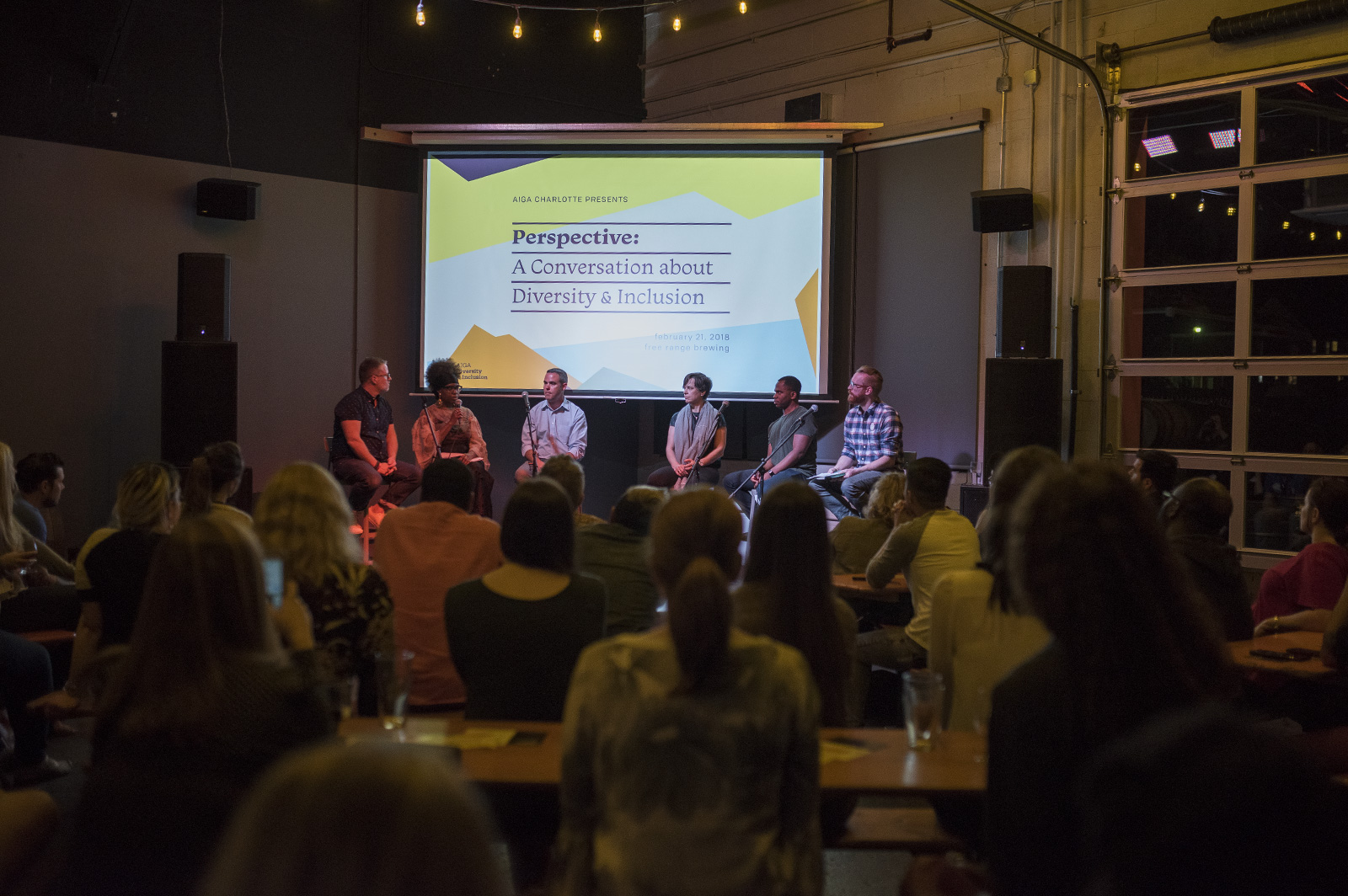
Meet our panel.
From left to right: Marty McKinney Senior Interaction Visual Designer at Ally Financial Inc., Kimberly Easley, Product Manager at Wells Fargo, Luis Costales, Creative Director + Founder at Atypic, Mikale Kwiatkowski, Art Director of Brand Experience at Belk, Chris Cureton, Art Director at Birdsong Gregory. Mediator: Doc Reed, Programming Manager for AIGA Charlotte Board
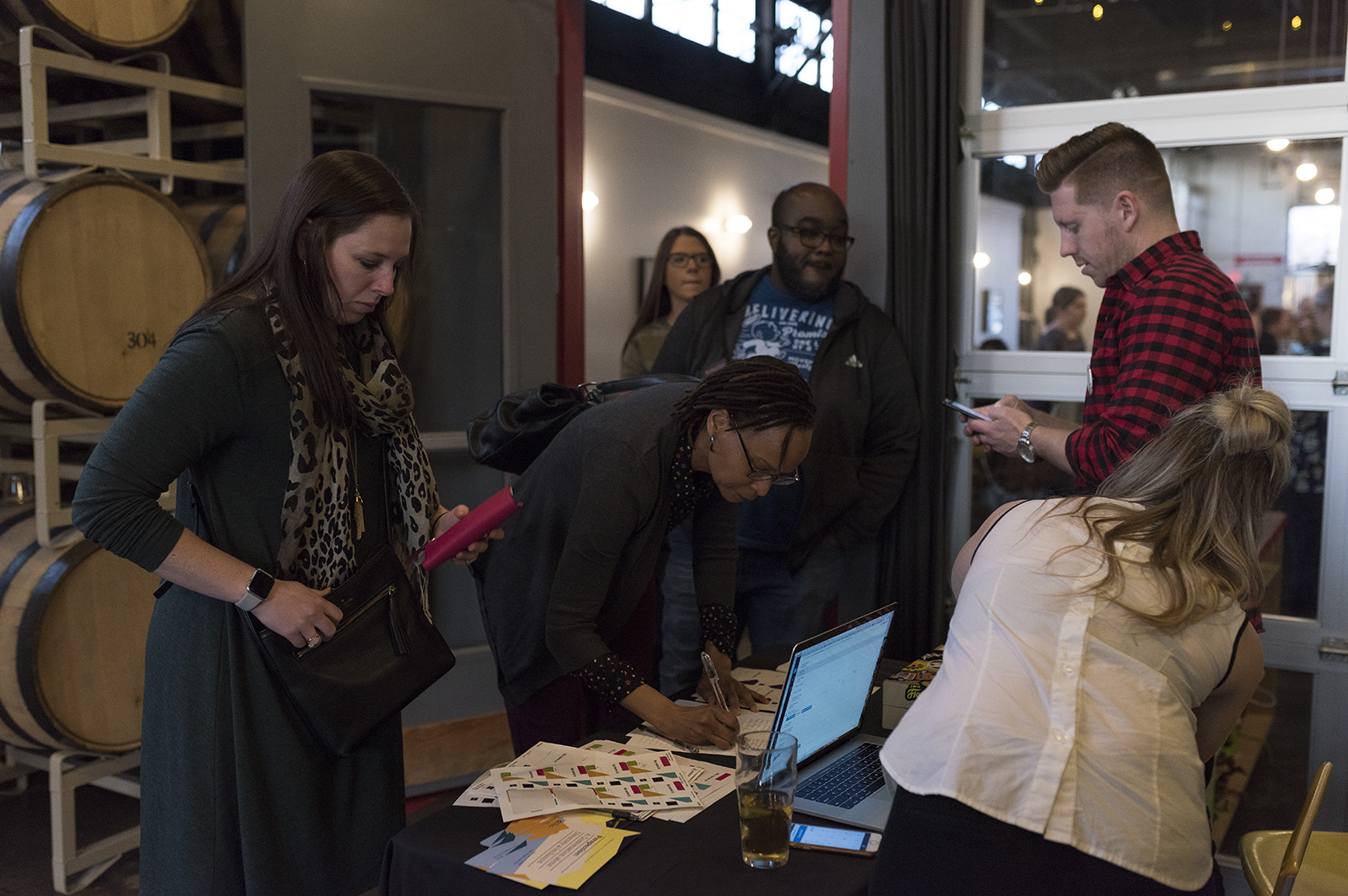
We were overwhelmed by the number of people who came out. You guys rock!
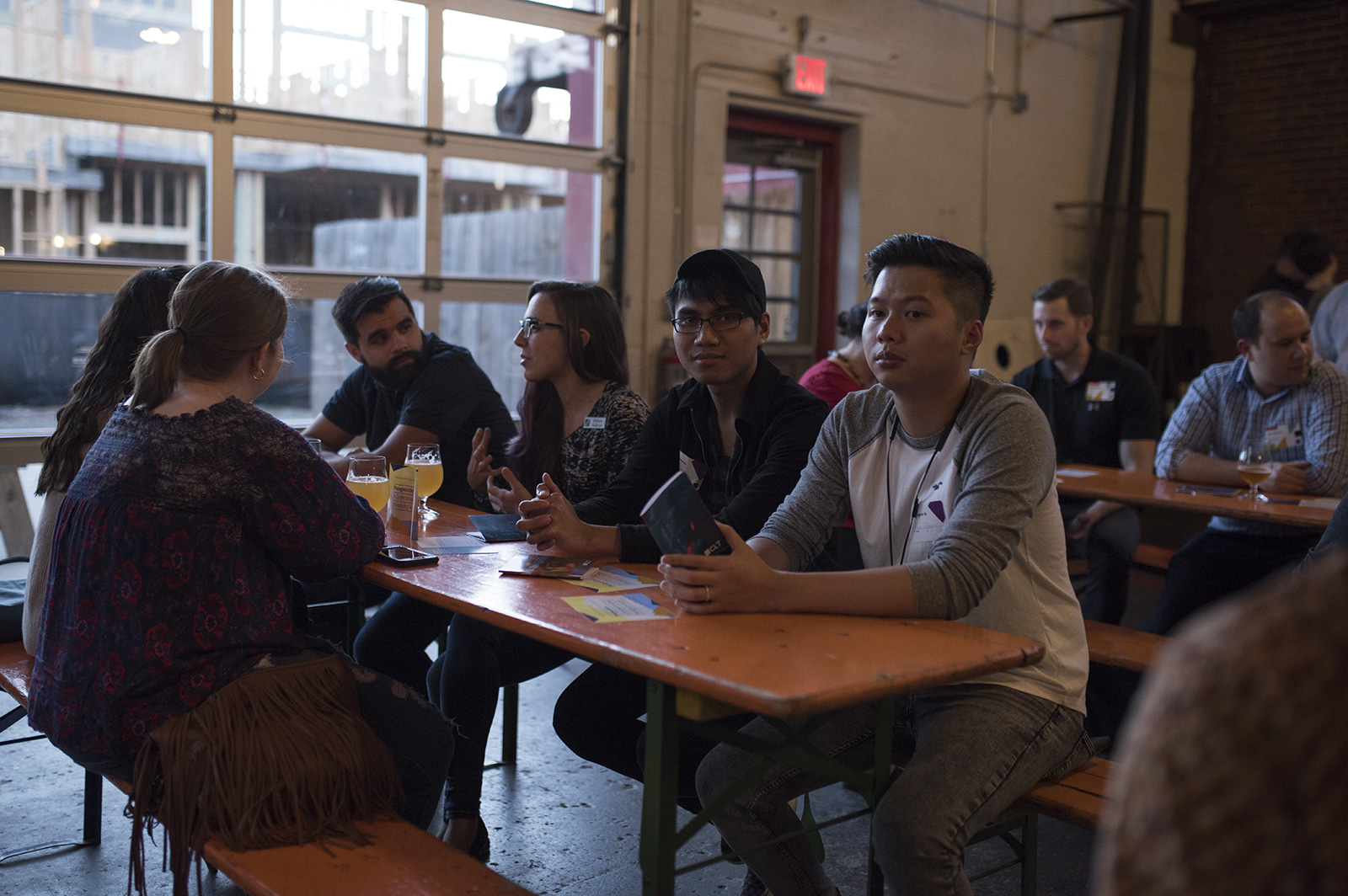
This is what you would call a “picture perfect” moment.
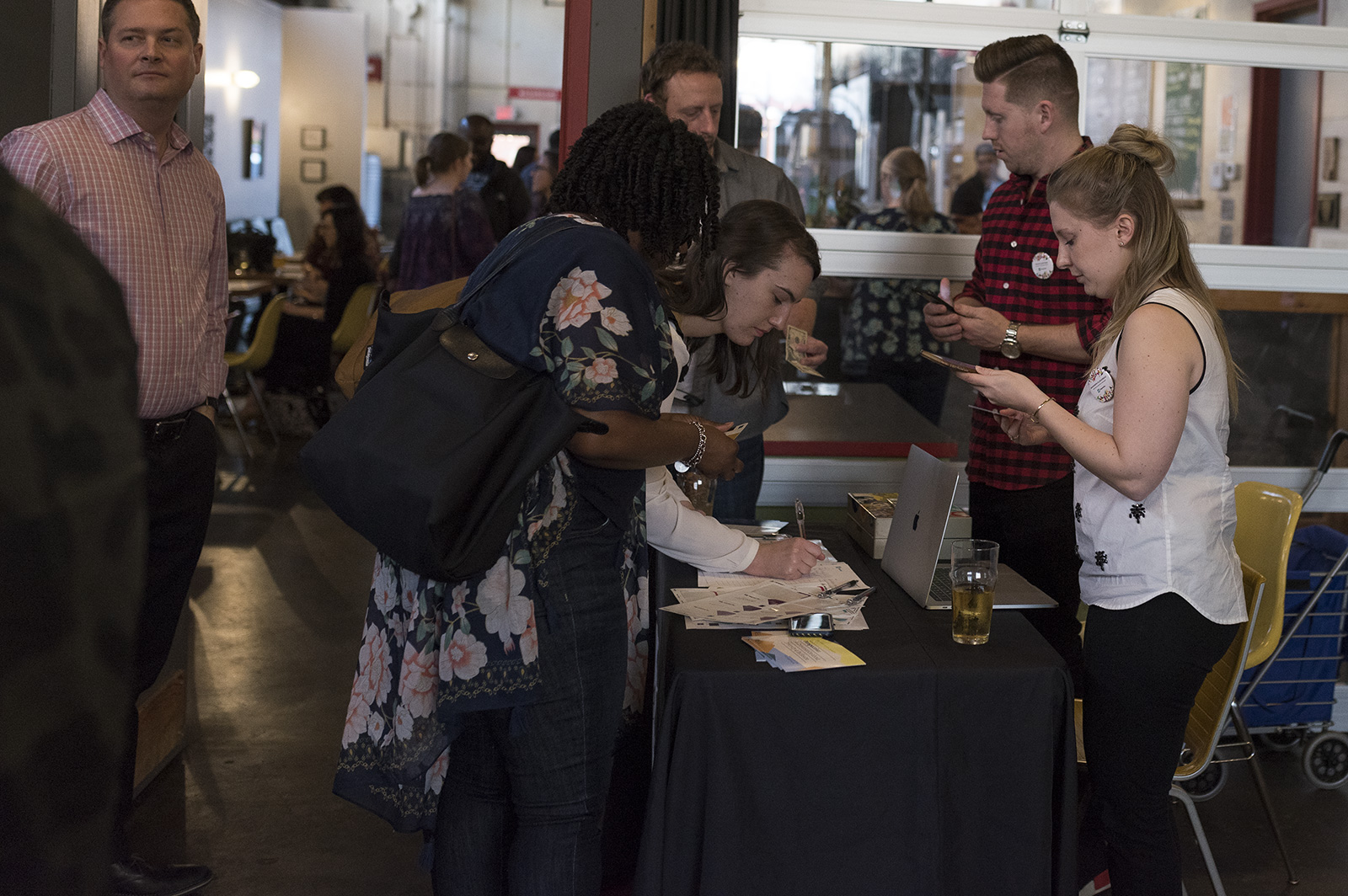
Gotta get those name tags!
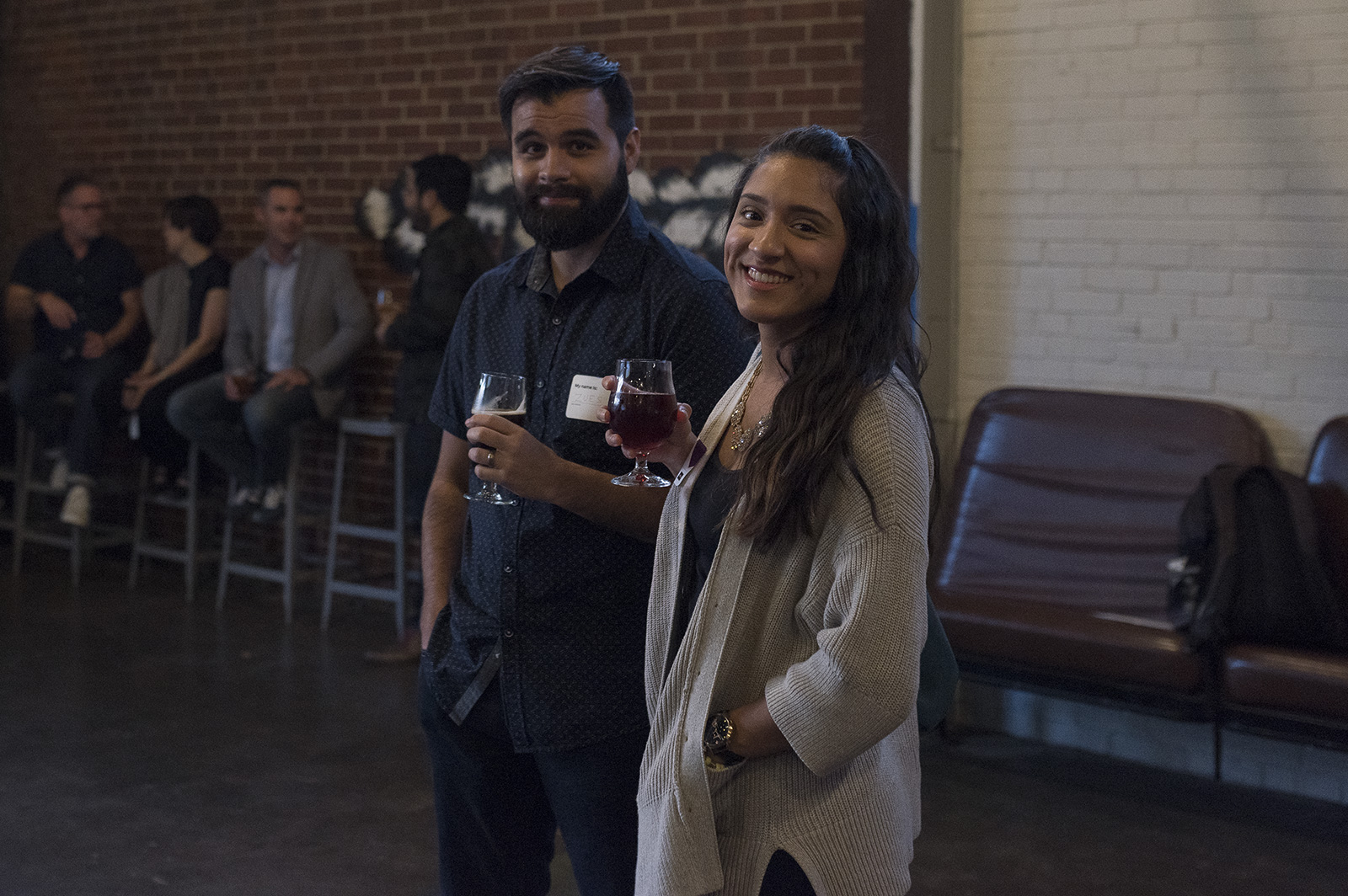
I call this one “Just me and you having a brew”.
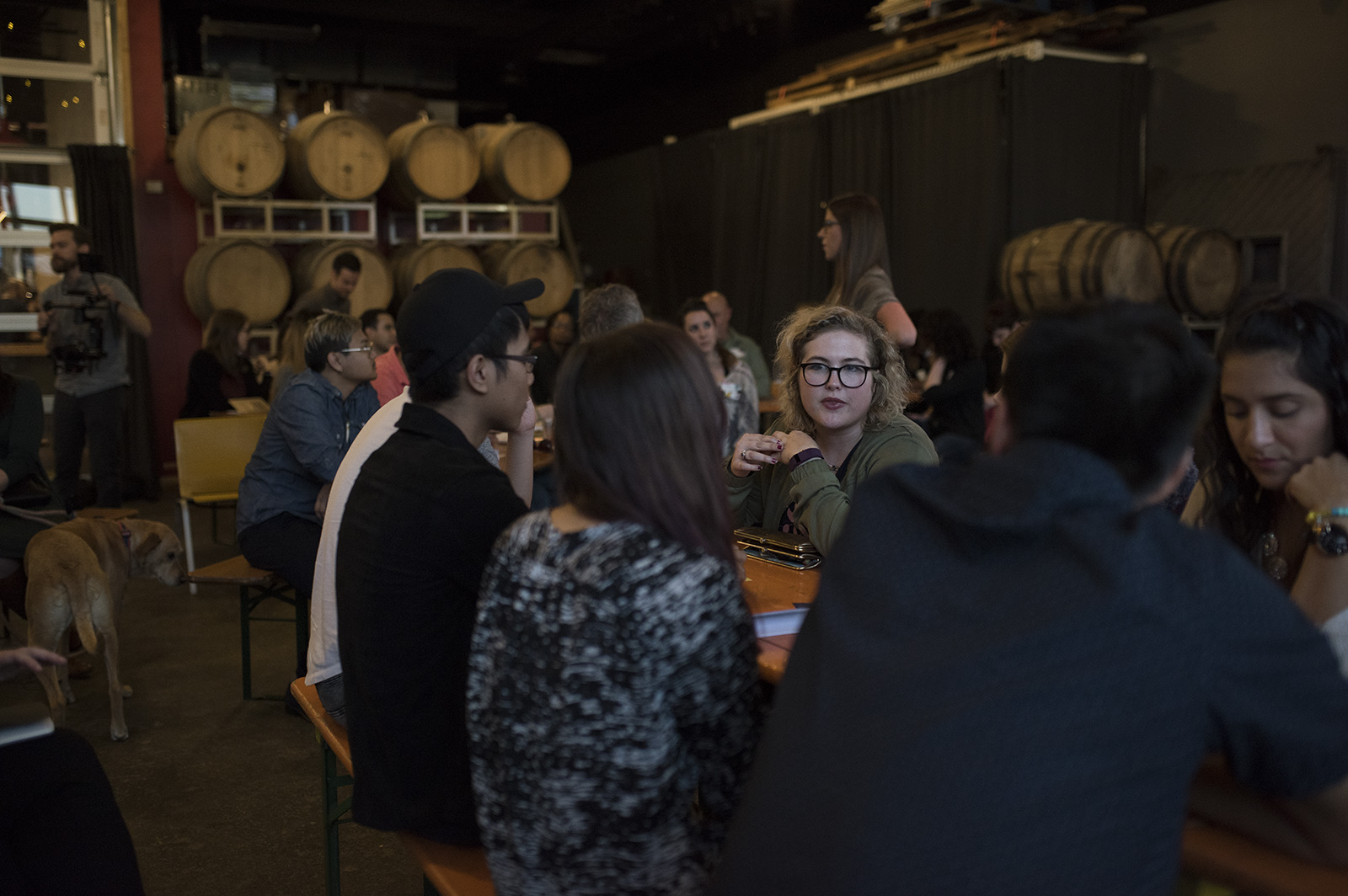
Little did we know, there were lots of conversations already happening before the panel even started.
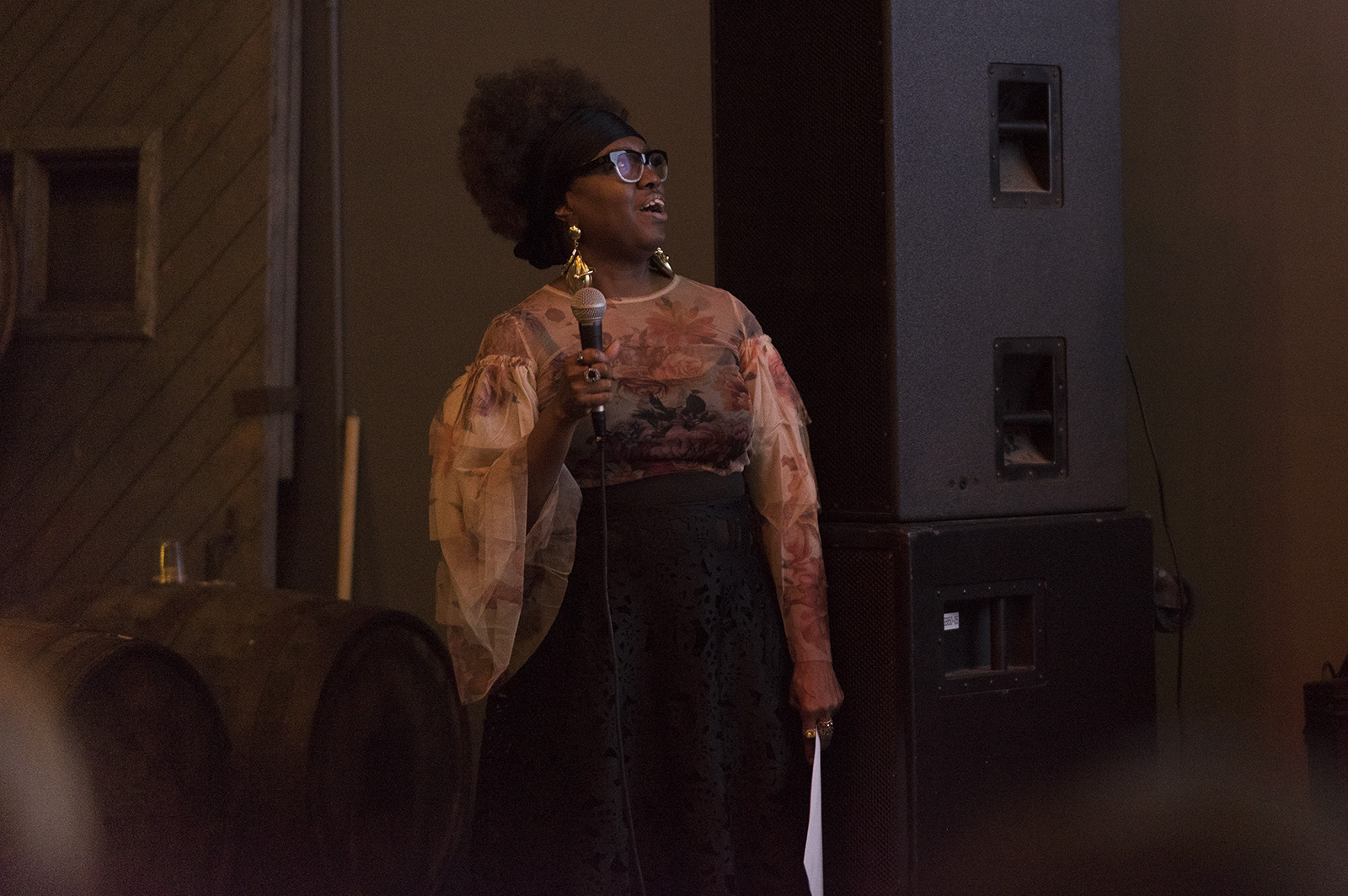
Kimberly Easley introducing herself. She told us her that she loves to dress like Prince and that her favorite job of all was being a mommy to her 23-year old twin sons.
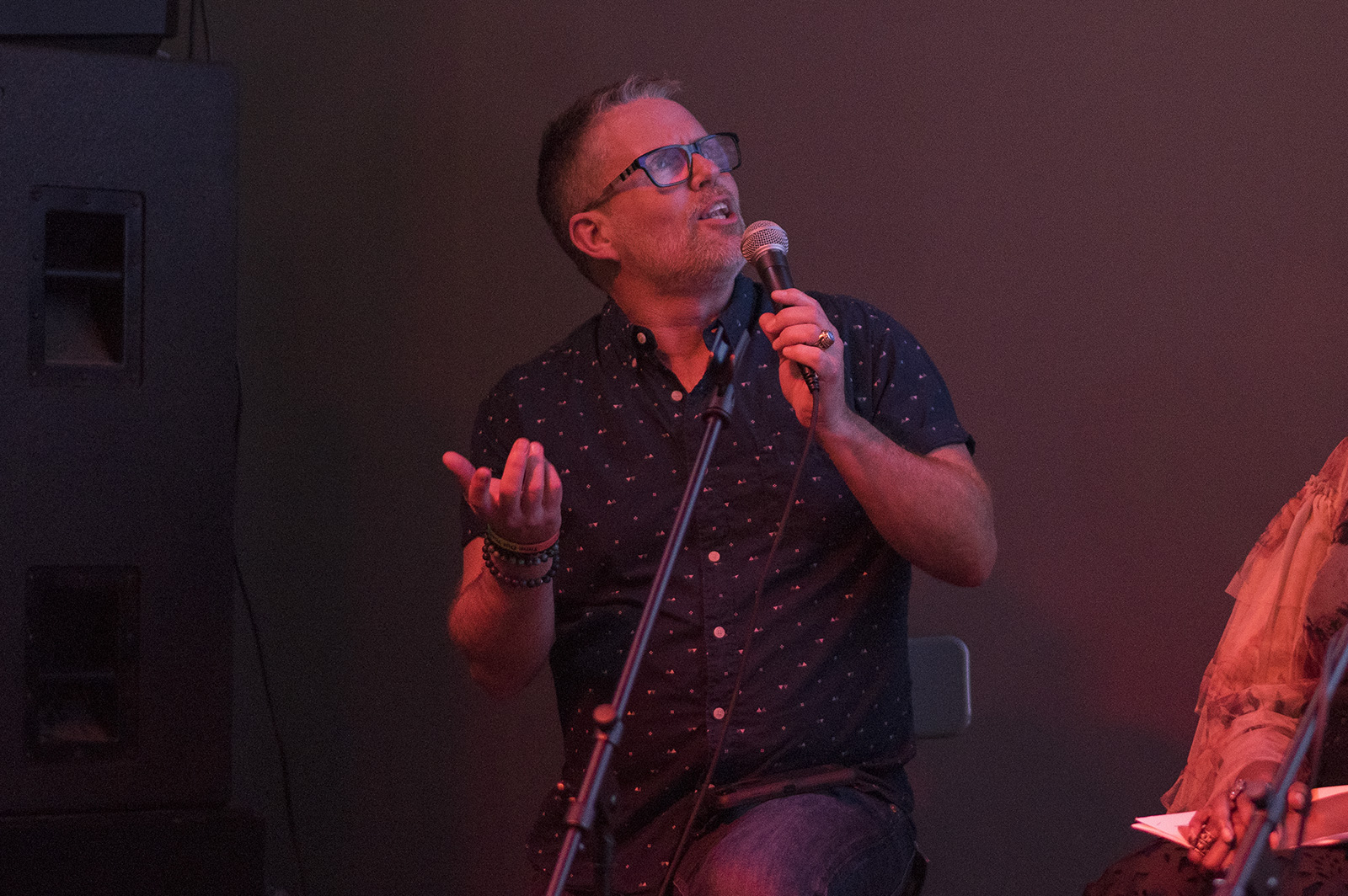
Marty McKinney took us down memory lane. He talked about people that had made a profound impact on his life, how much hair he used to have and what it was like living in LA during dotcom explosion and implosion.
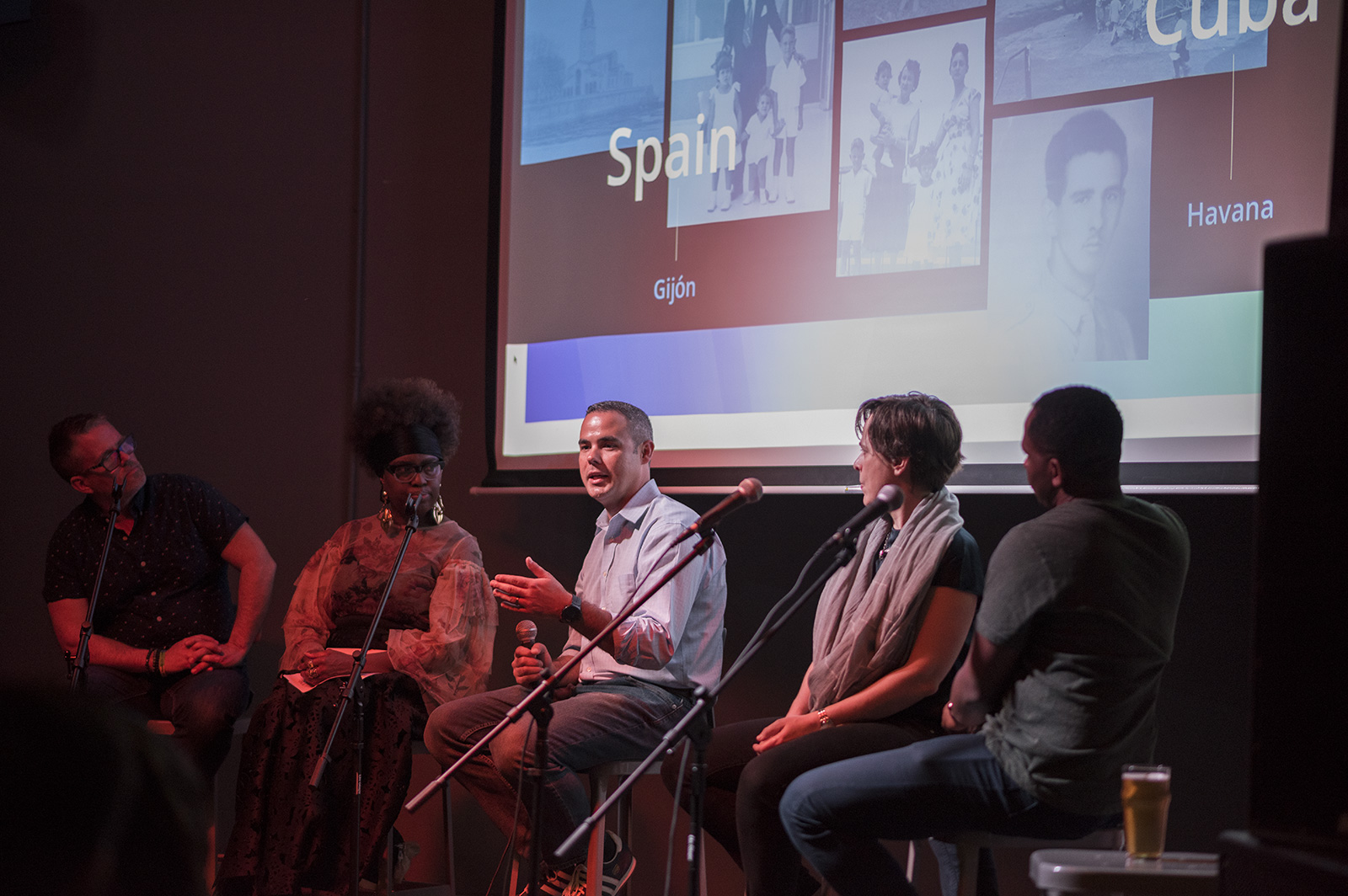
Luis Costales talked about being a first-generation American and how his grandparent’s mindset coming as immigrants to the US had a profound impact on him from a very young age.
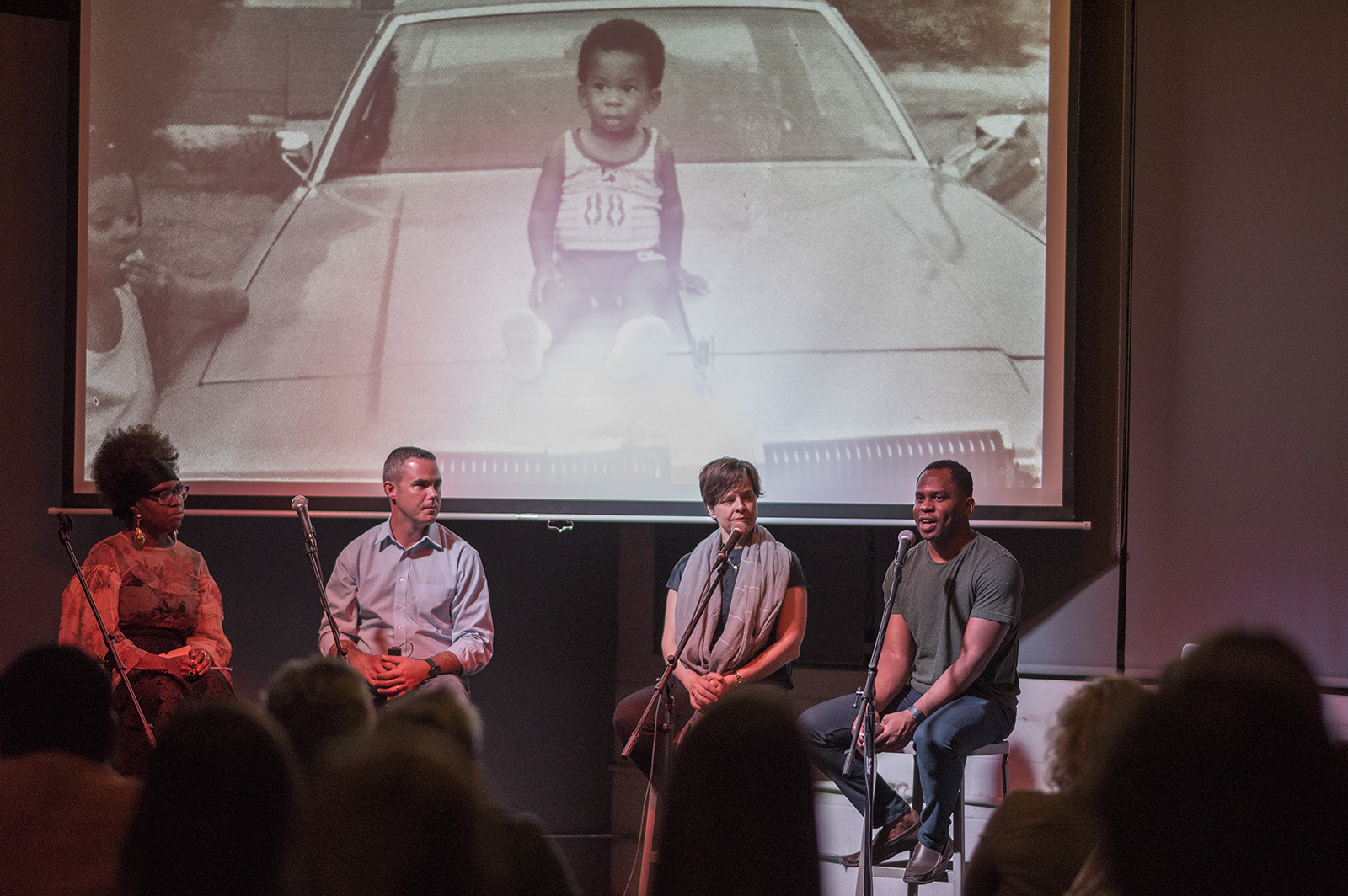
Chris Cureton showed us a really cute picture of him as a kid and also talked about stereotypes, how he’s never worked with another full-time black designer and how he’s a fan of Panthers (more specifically the Carolina Panthers and the new Black Panther Movie).
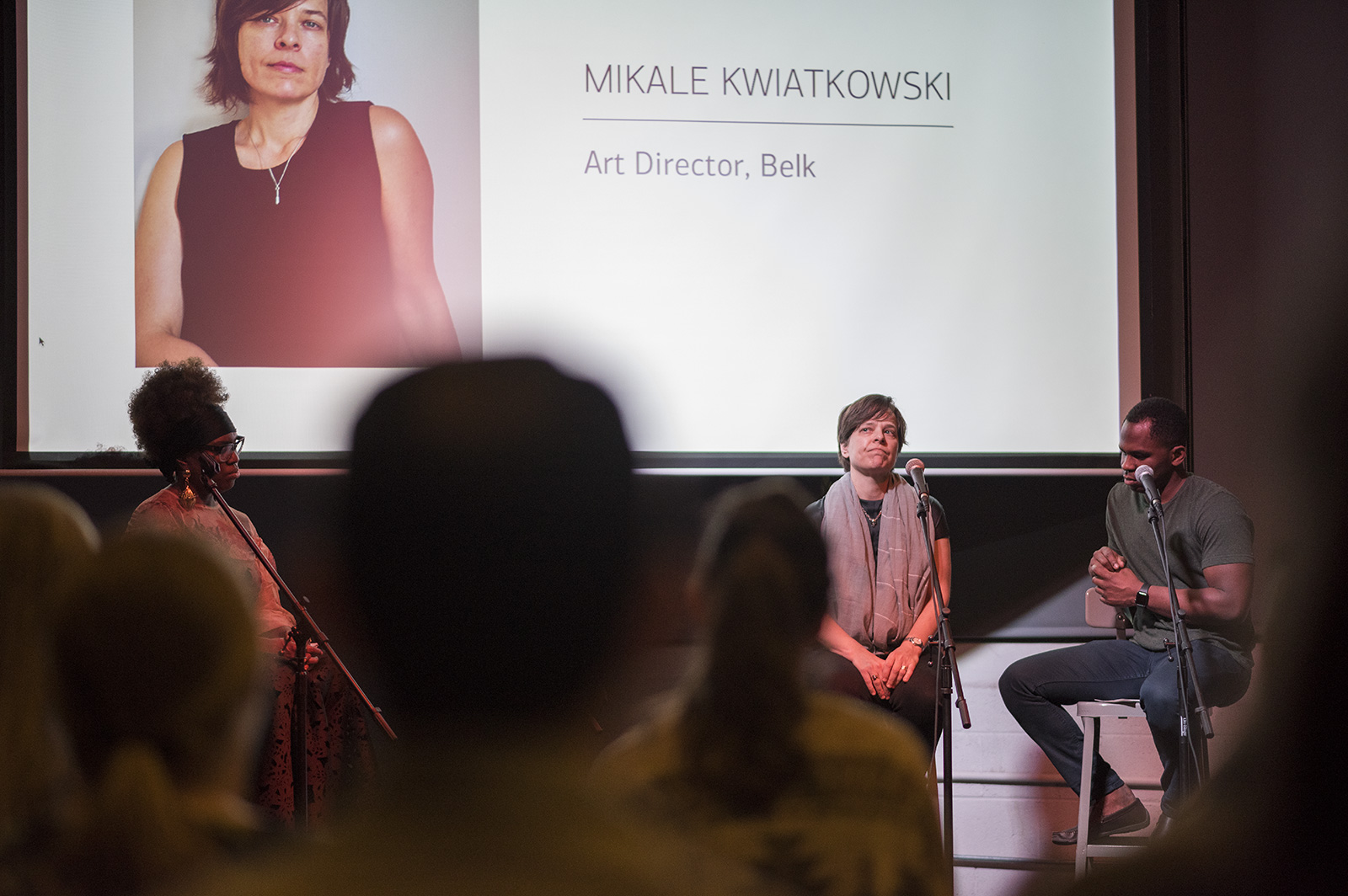
Mikale Kwiatkowski talked about how she had pursued an architecture degree, how she hasn’t really faced a lot of the challenges that her peers have faced and what it’s like to be an outspoken woman that has ideas.
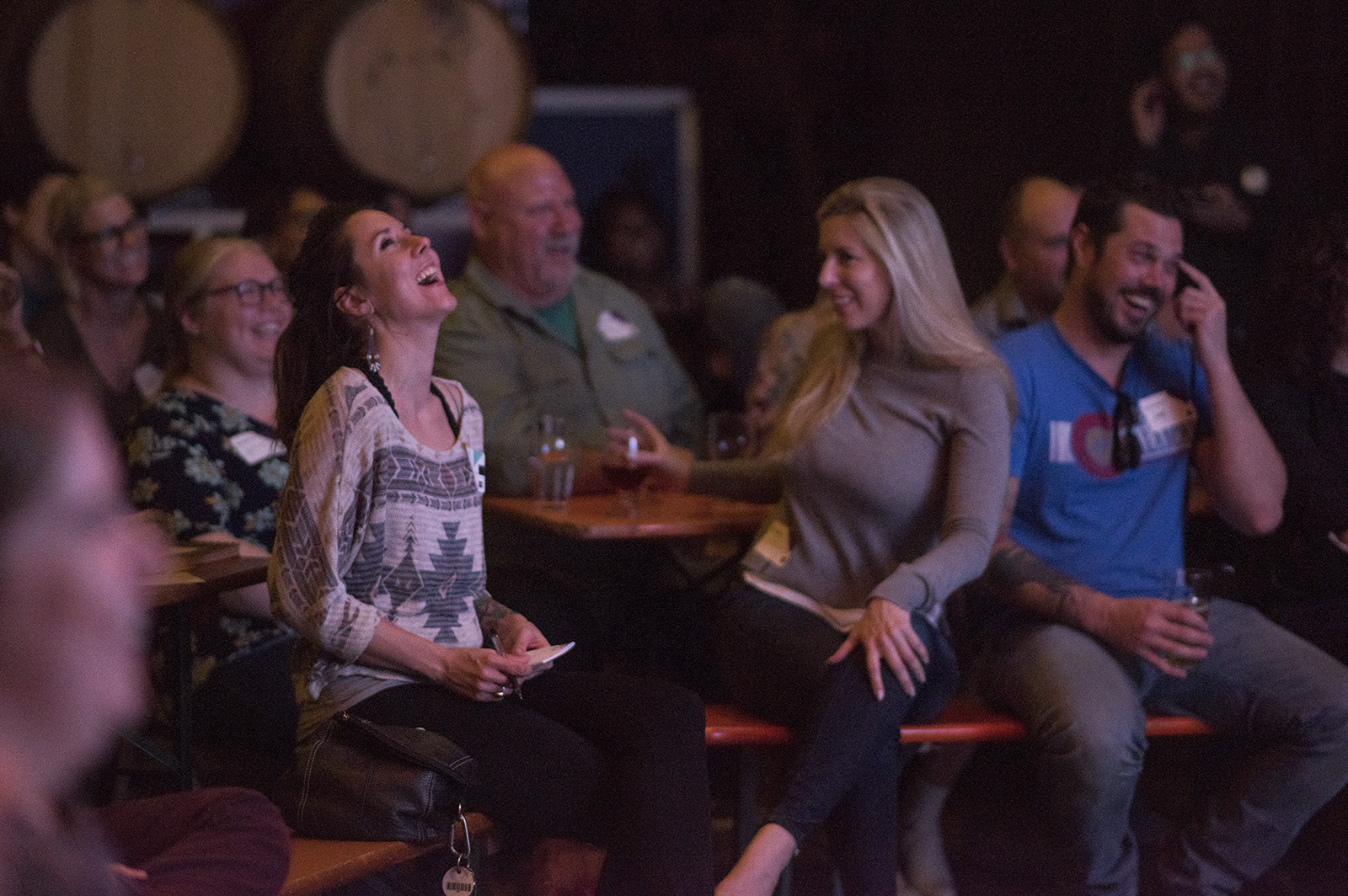
Even though we talked about a lot of serious stuff, there were still plenty of laughs had too.
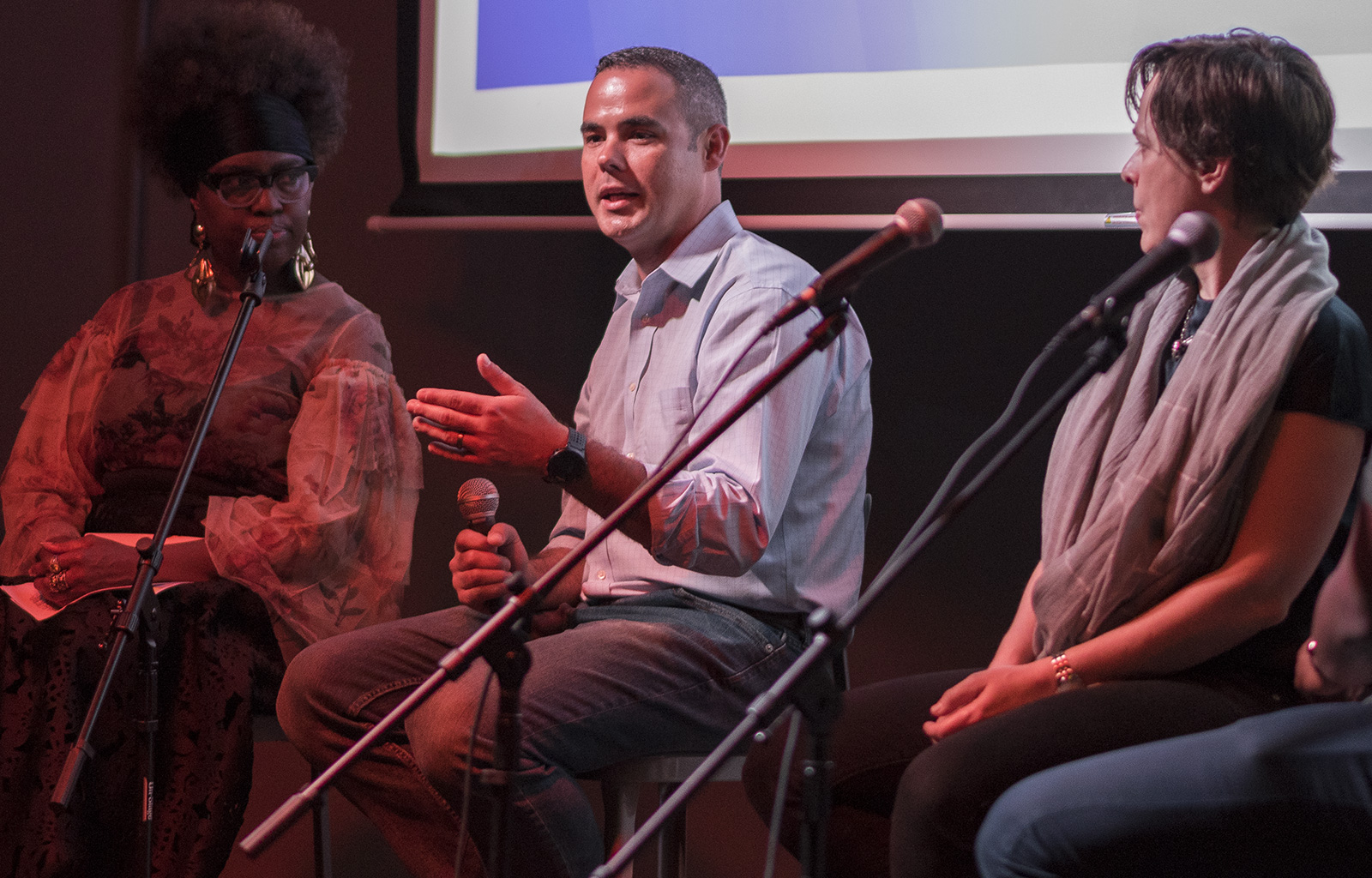
“It comes down to the leadership and those who are hiring.” – Luis
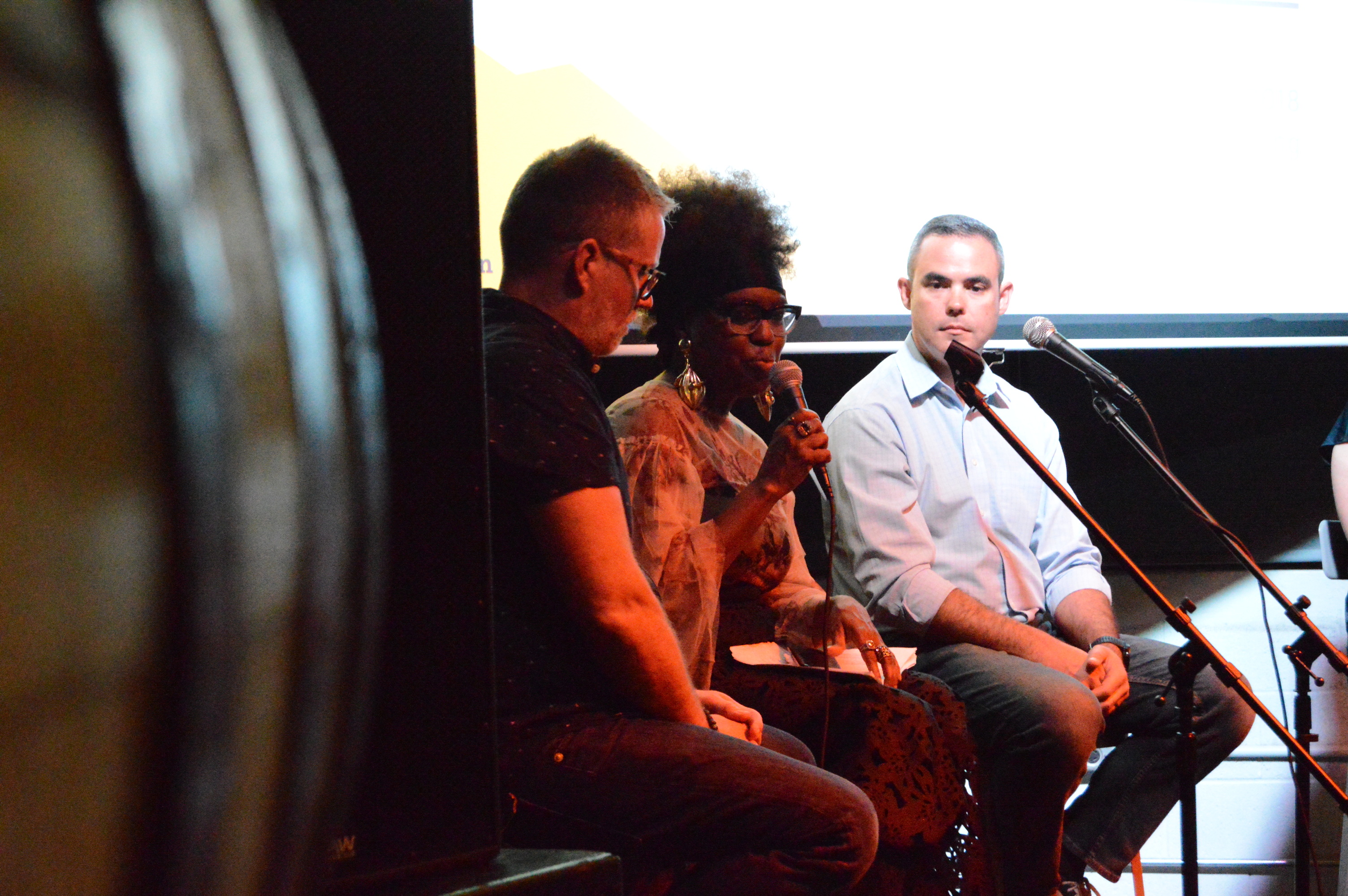
“It starts with you. The beautiful part of the human experience is that we are all a voice in this world and we deserve to be heard.” – Kimberly
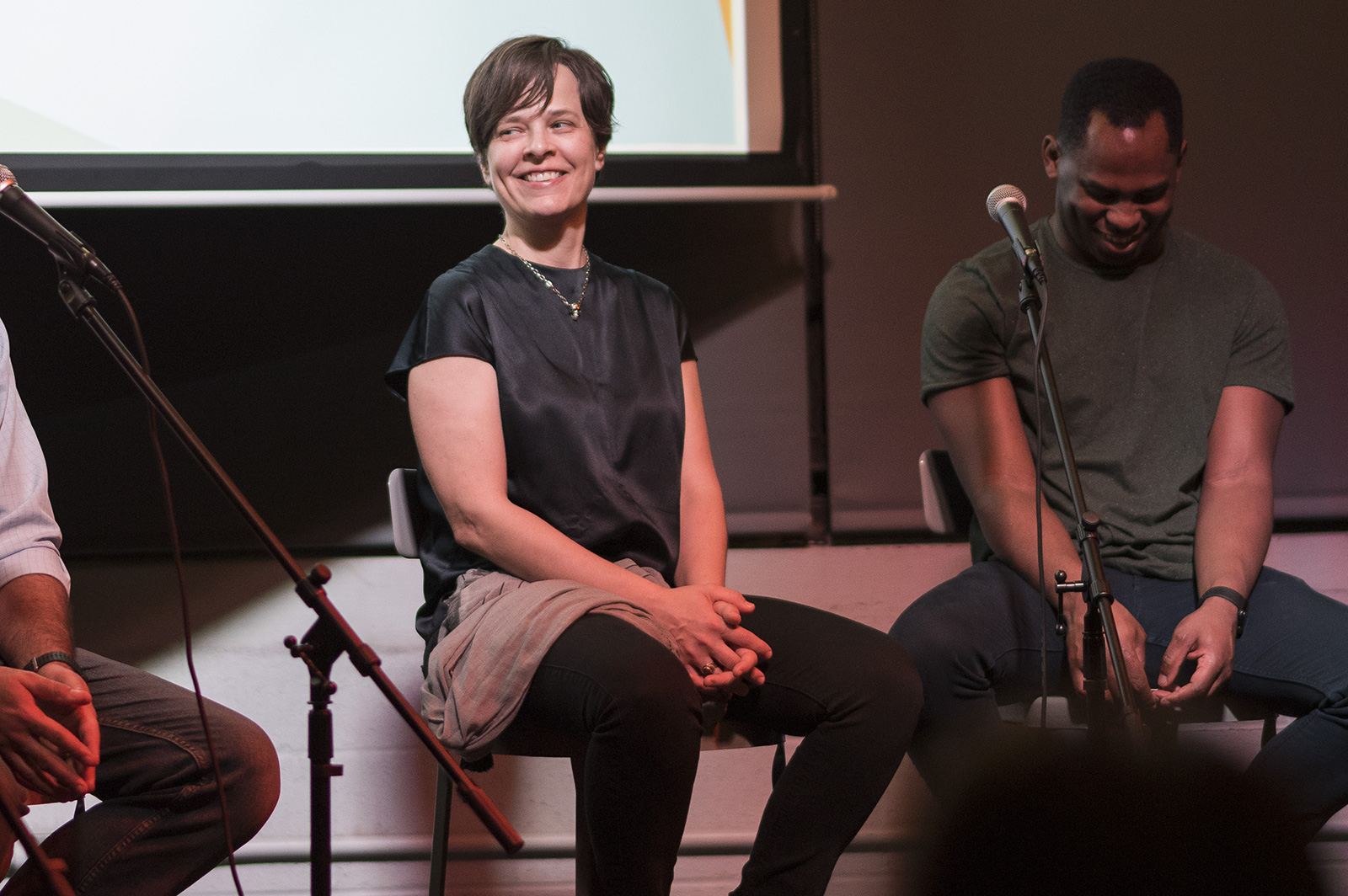
“Inclusion to me means the people outside those groups actually remembering. Like a white straight man speaking to supportive ideas, that’s the mobilization we’ve talked about. It’s the actual change. ” – Mikale
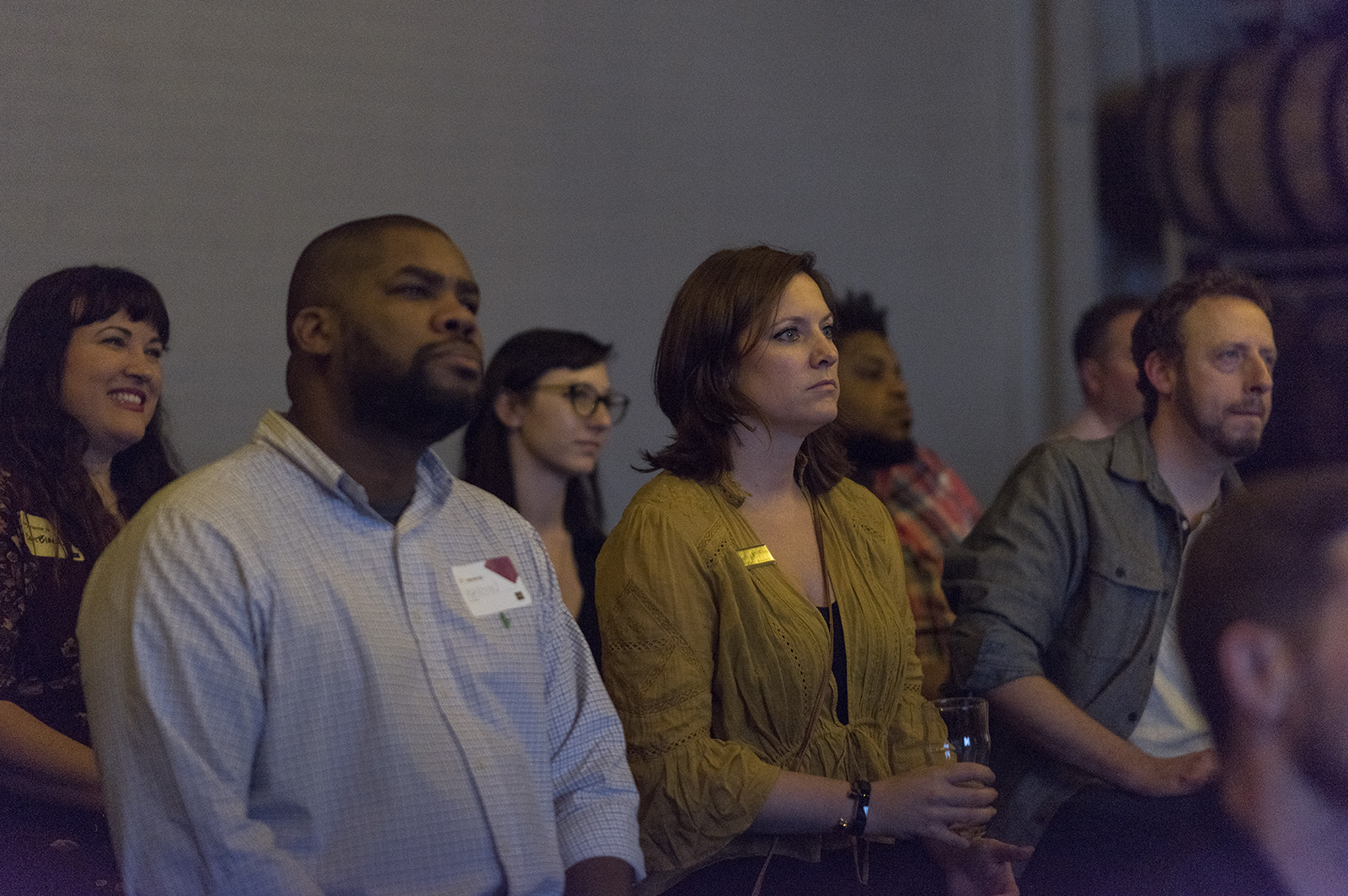
“I define diversity as an assembly of different cultures, communities or interests, and backgrounds. Sort of like we are a diverse group within this room, so this represents diversity to me. Inclusion is the mobilization of diversity. I think inclusion is the most important piece because you can assemble a group of diverse cultures and communities and different interests, ect. But without an active voice and without active participation from those different groups, then you have an empty definition of diversity.” – Kimberly
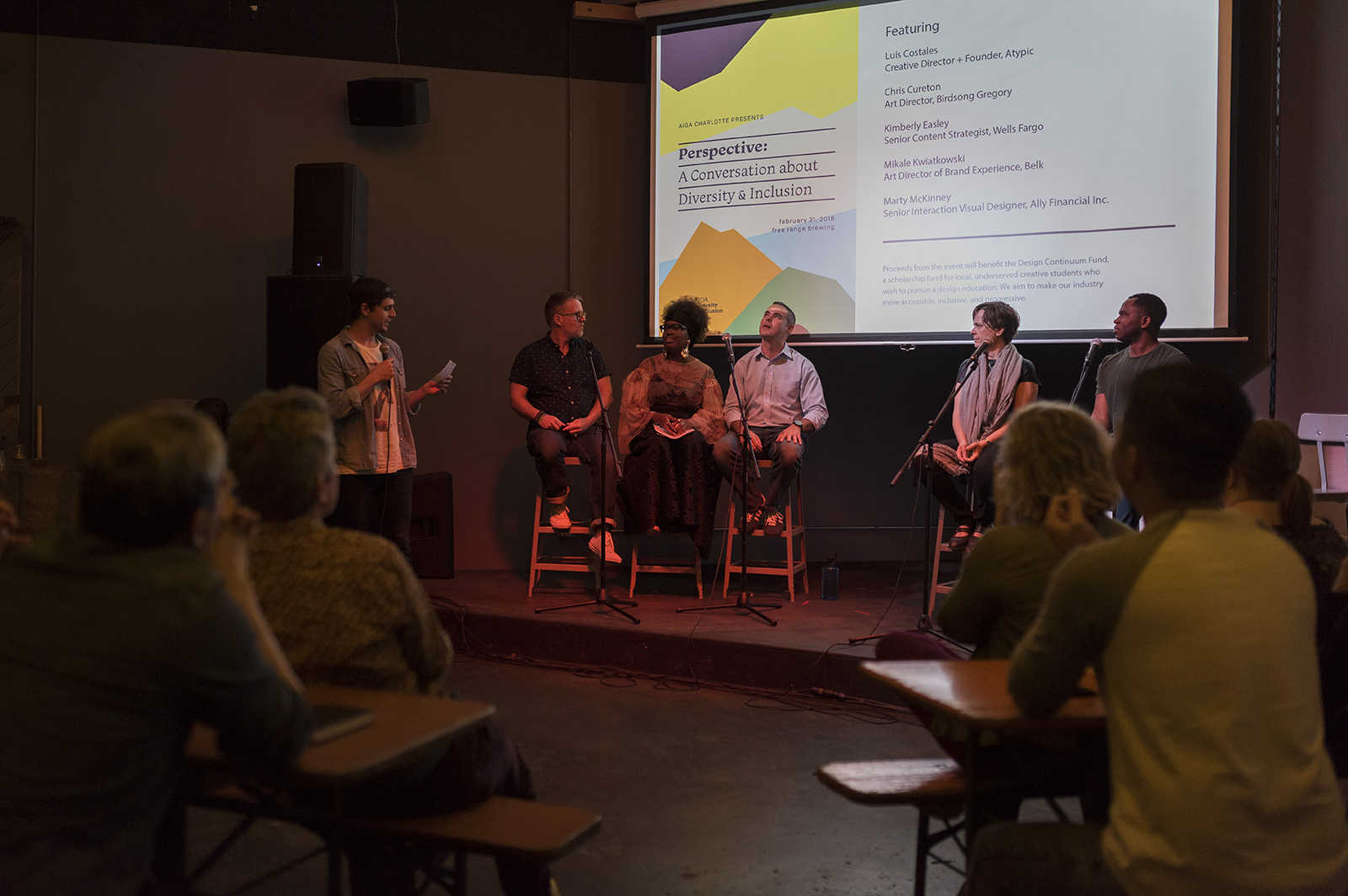
“Diversity is the vehicle and inclusion is the fuel.” -Kimberly
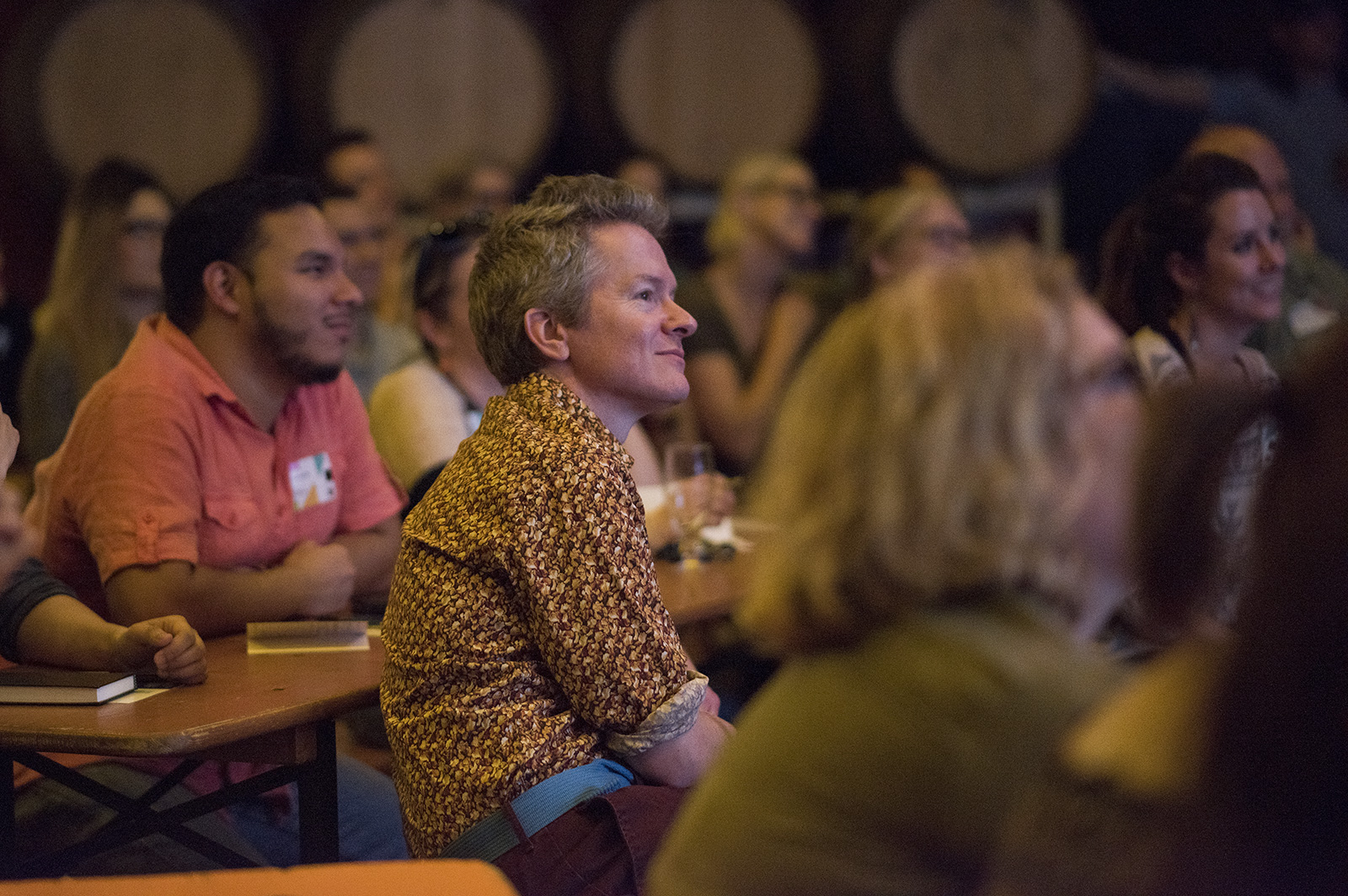
“Everyone is coming from a different place, seeing things in a different way, that’s the beauty of being a human being, no one can replicate your experiences. No matter what you’re going to approach things slightly different from somebody else.” – Chris
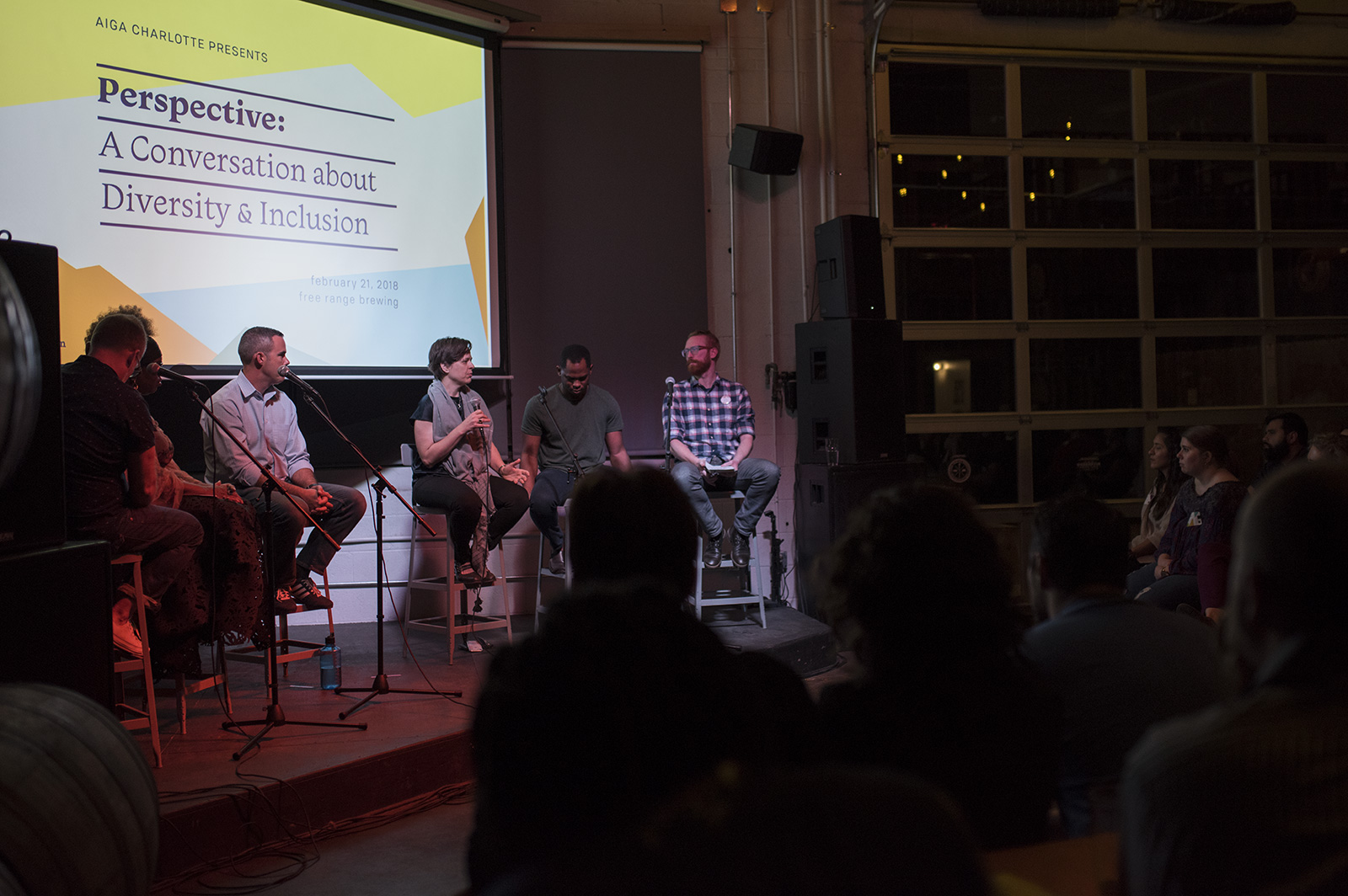
“For those of you that are freelance or work for a smaller company, you don’t have to rely on a large company to do this [talking about resource groups]. Start a group, get your voice out there, work together as a community and let your voices be heard. You don’t have to rely on a large corporation to that for you.” – Marty
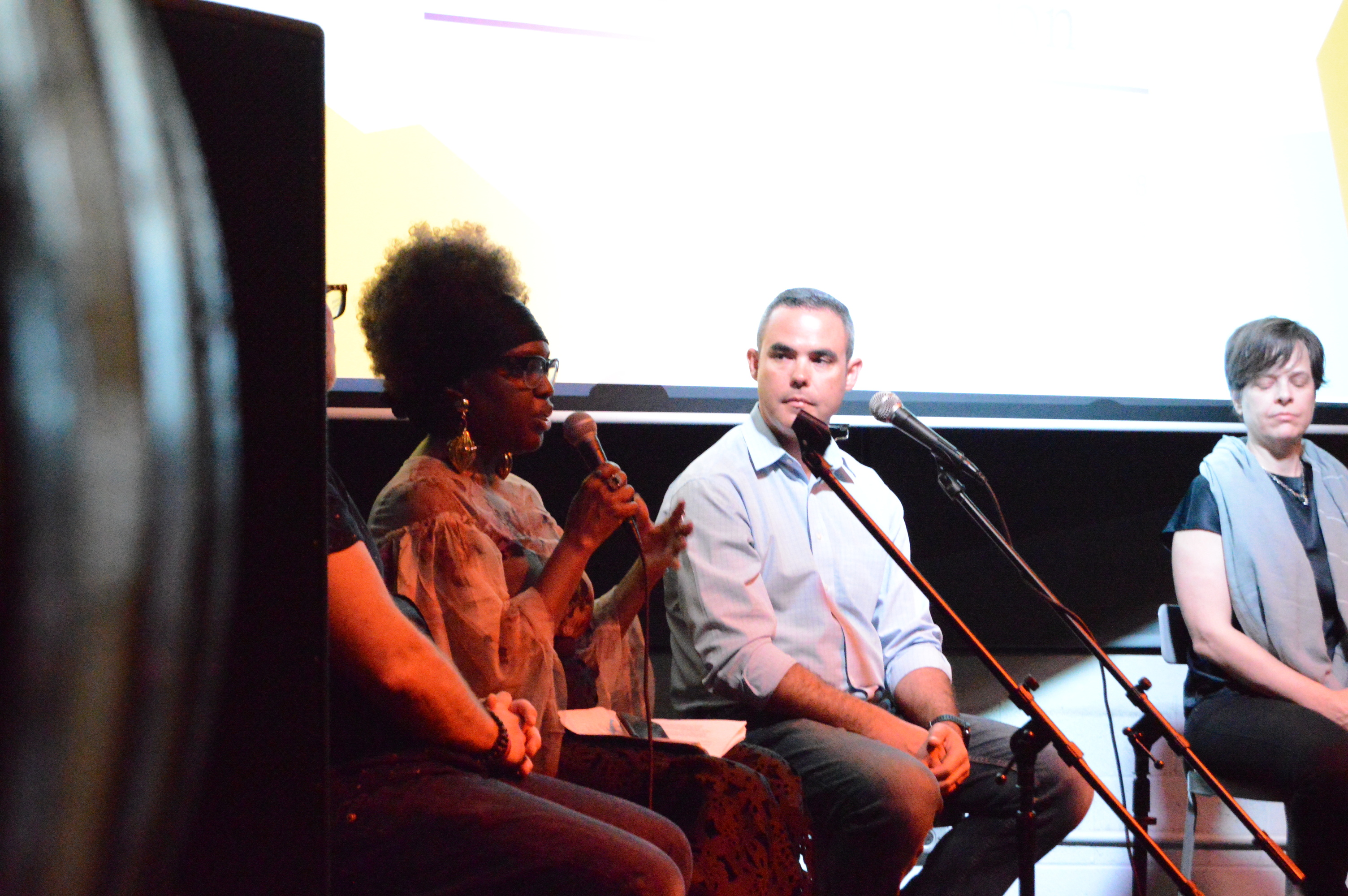
“We’ve come a long way, but there’s still more progress we need to make.” – Kimberly

“I beat myself up for not being more courageous. Once things become normalized, they’re normalized.” – Chris
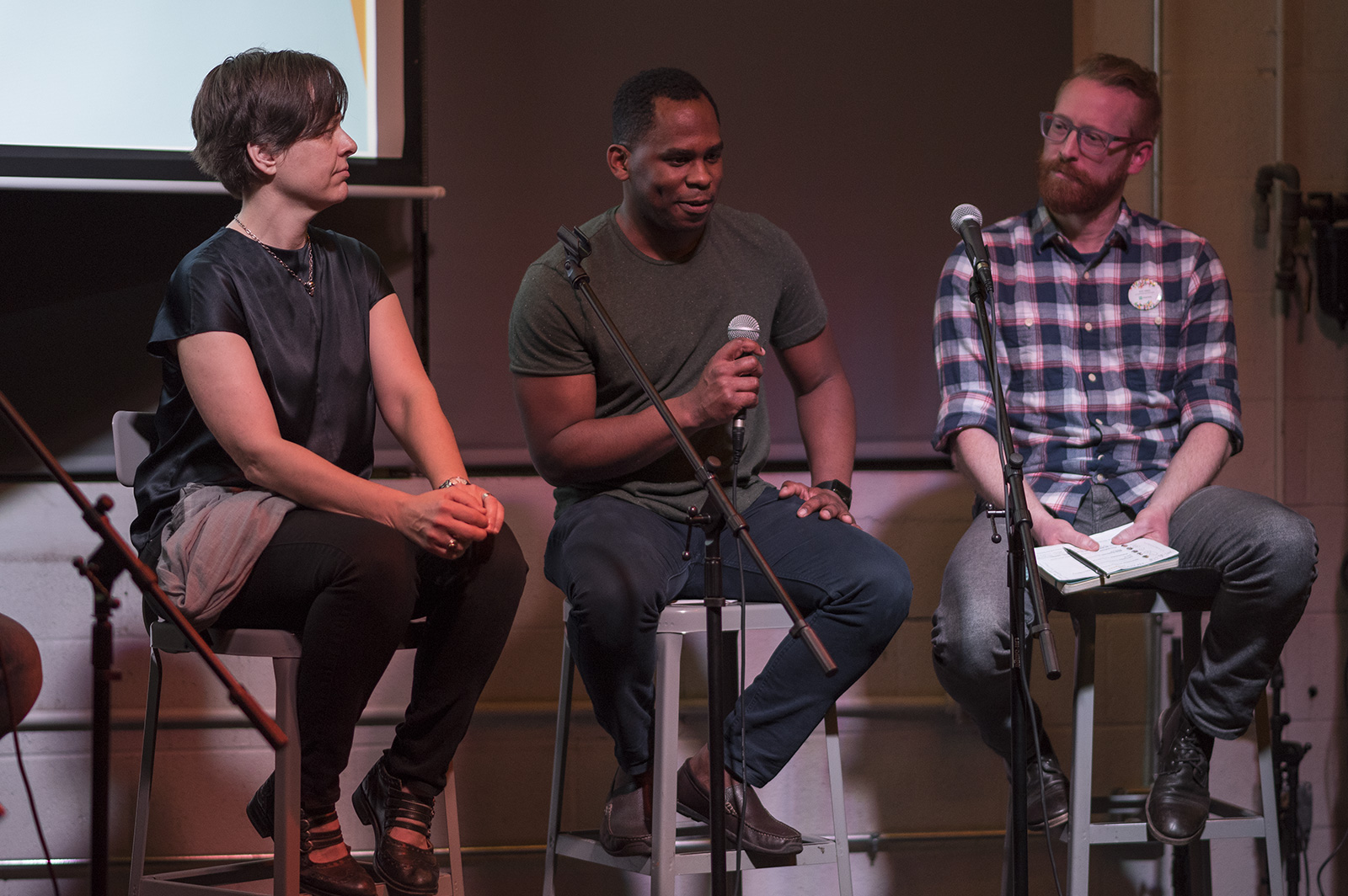
“There’s balance on where to push and where to pick your battles and what’s actually going to have an impact at the end of the day anyway.” – Chris
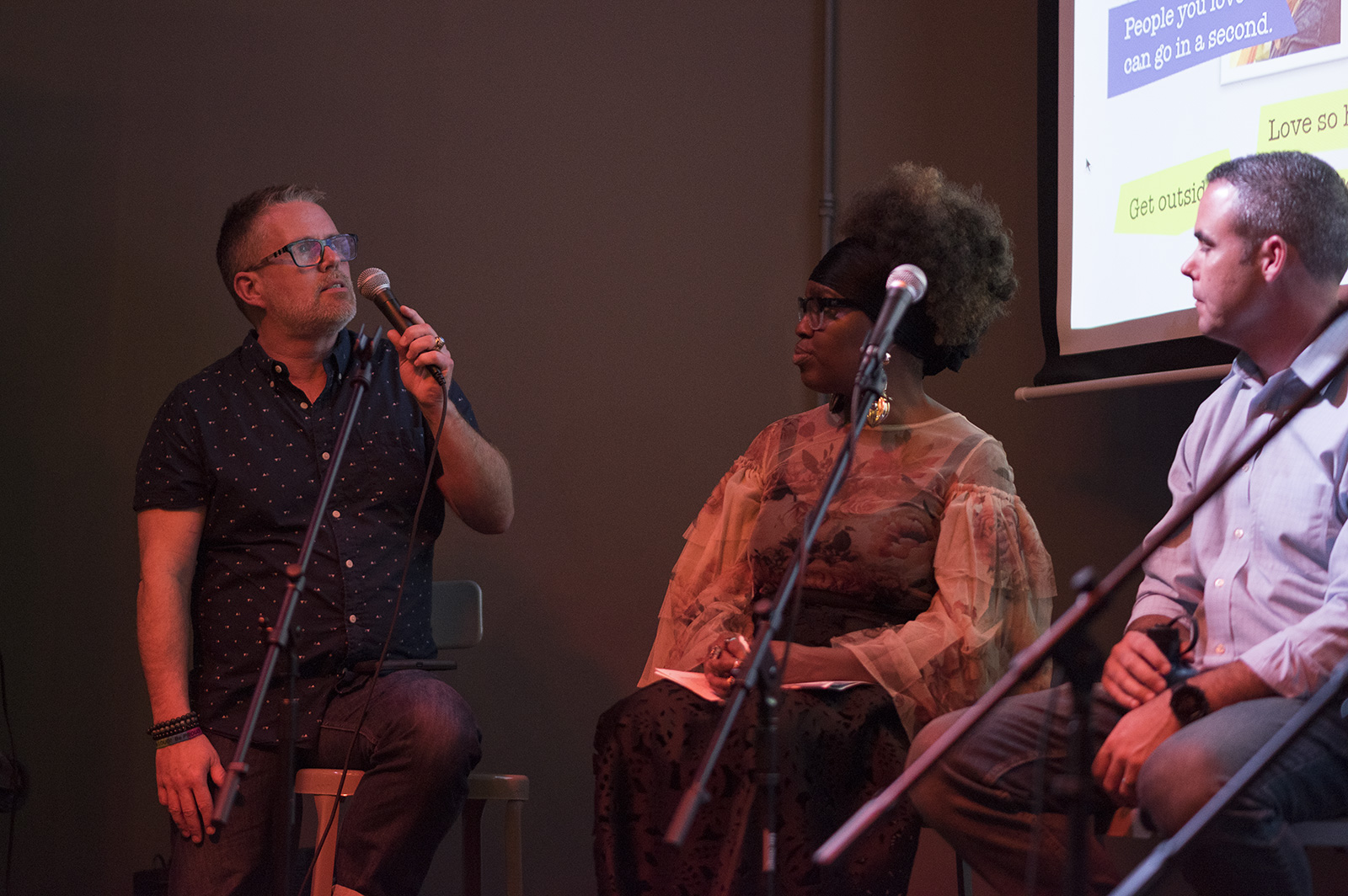
“I read this article on Fast Company and the guy was talking about how things nowadays just go so fast, designs have to go in and out so fast. His example was about Facebook. This woman named Bobby was accidentally outed on Facebook as a college freshman. Because she went to college and joined this Queer Organization and joined the Facebook group and her parents saw it. And she had made all of these privacy settings so that her parents didn’t see it, but Facebook, just trying to quickly make their own decisions moved fast and made a decision that the group privacy settings should override personal privacy settings. So that’s when Bobby was disowned by her parents and later committed suicide.” – Marty
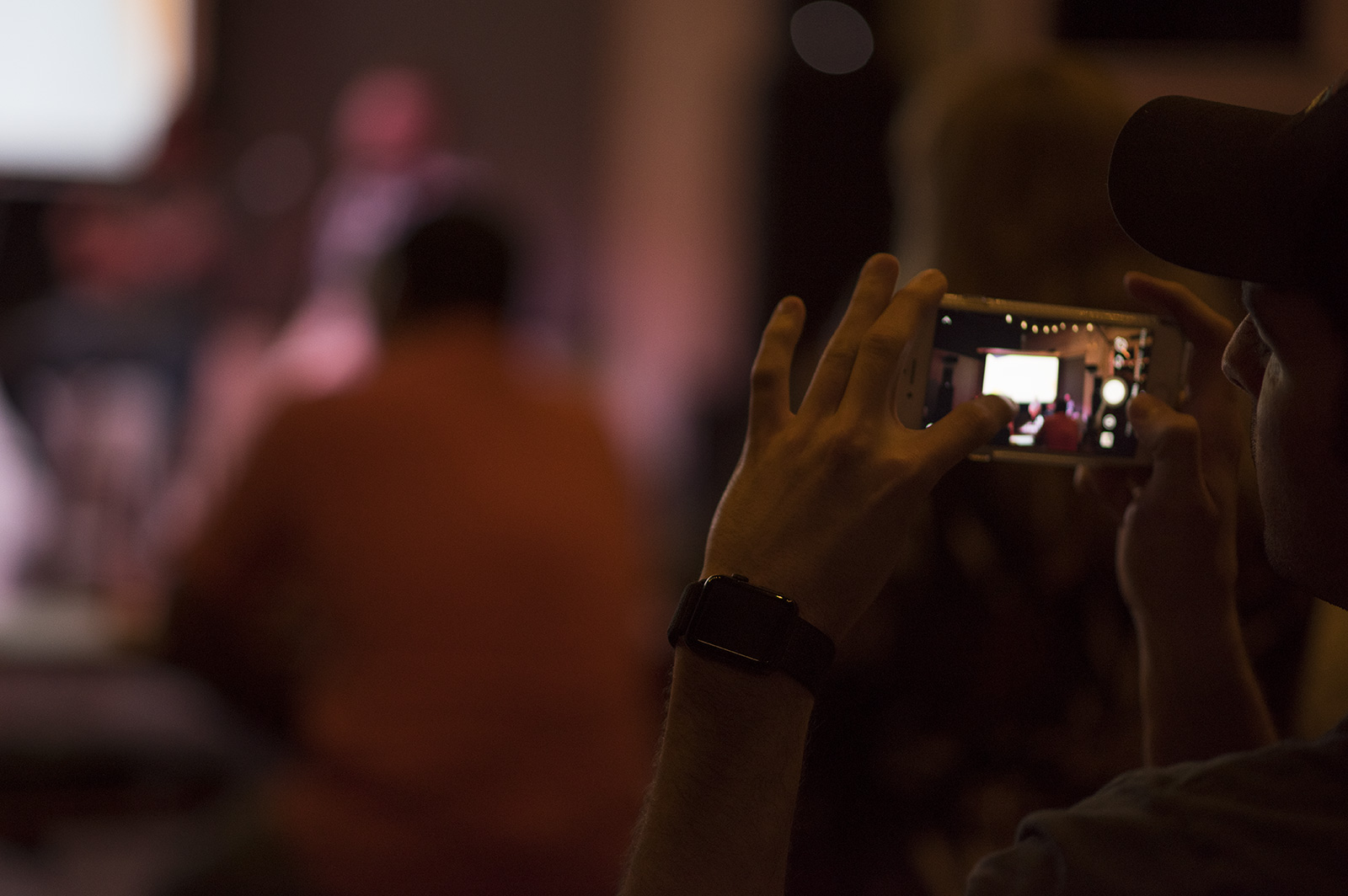
“Sometimes we just have to slow down and stop and think about the consequences of what we’re really designing and what we’re really putting out there. And does it really need to go that fast? Do we need to pull back and think about if this is speaking to the right audience? Is this going to hurt someone?” – Marty
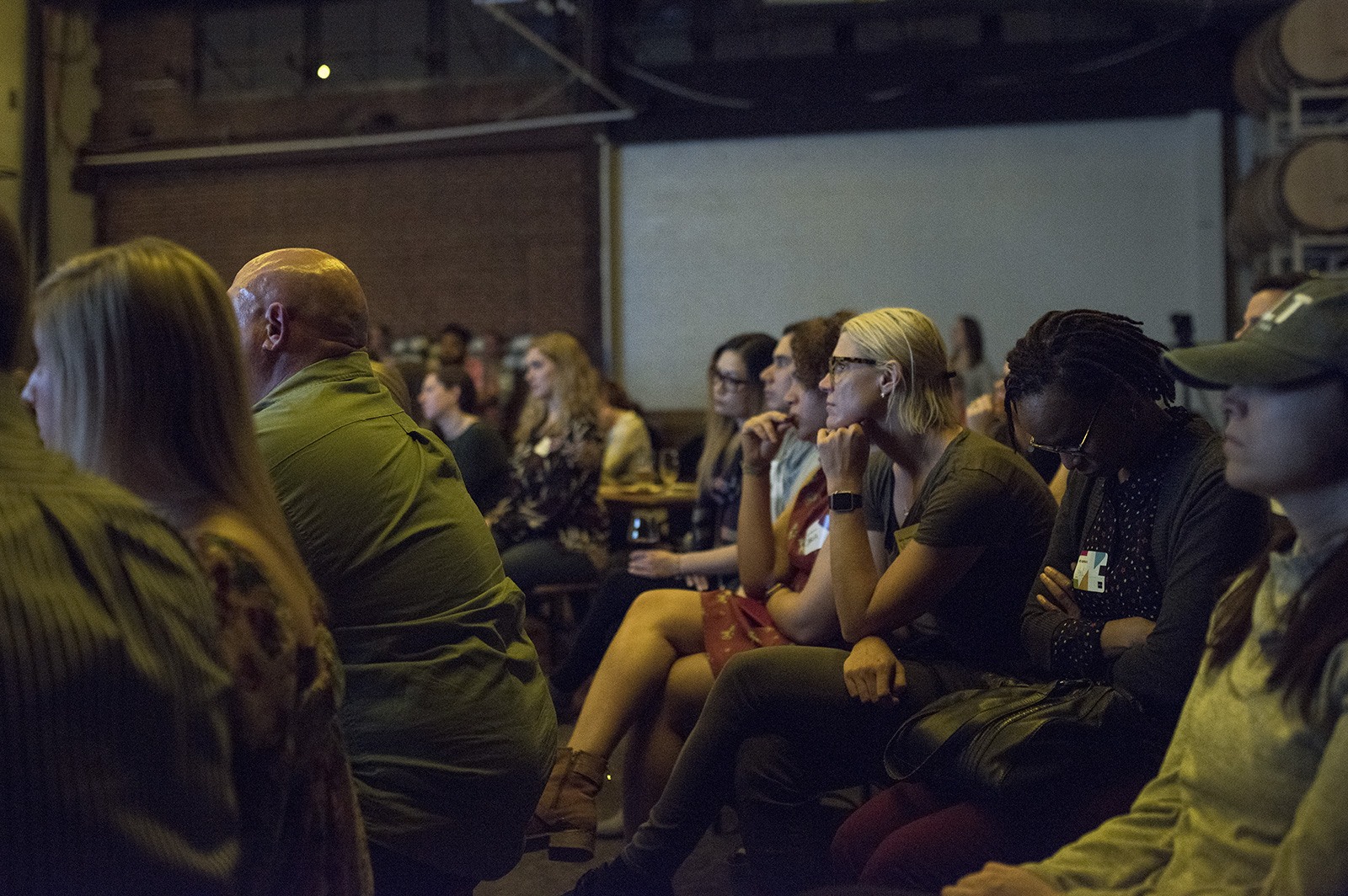
“I’ve been many places where they say to make sure that put the African American in there, and it’s just a very surface scratching approach to diversity. It’s embarrassing. I can’t have a conversation with my boss, it just depends on how they’re wired, whether I can challenge that. So that seems like an unconscious bias. It’s like an awareness, but a very limited awareness about where we can represent different people.” – Mikale
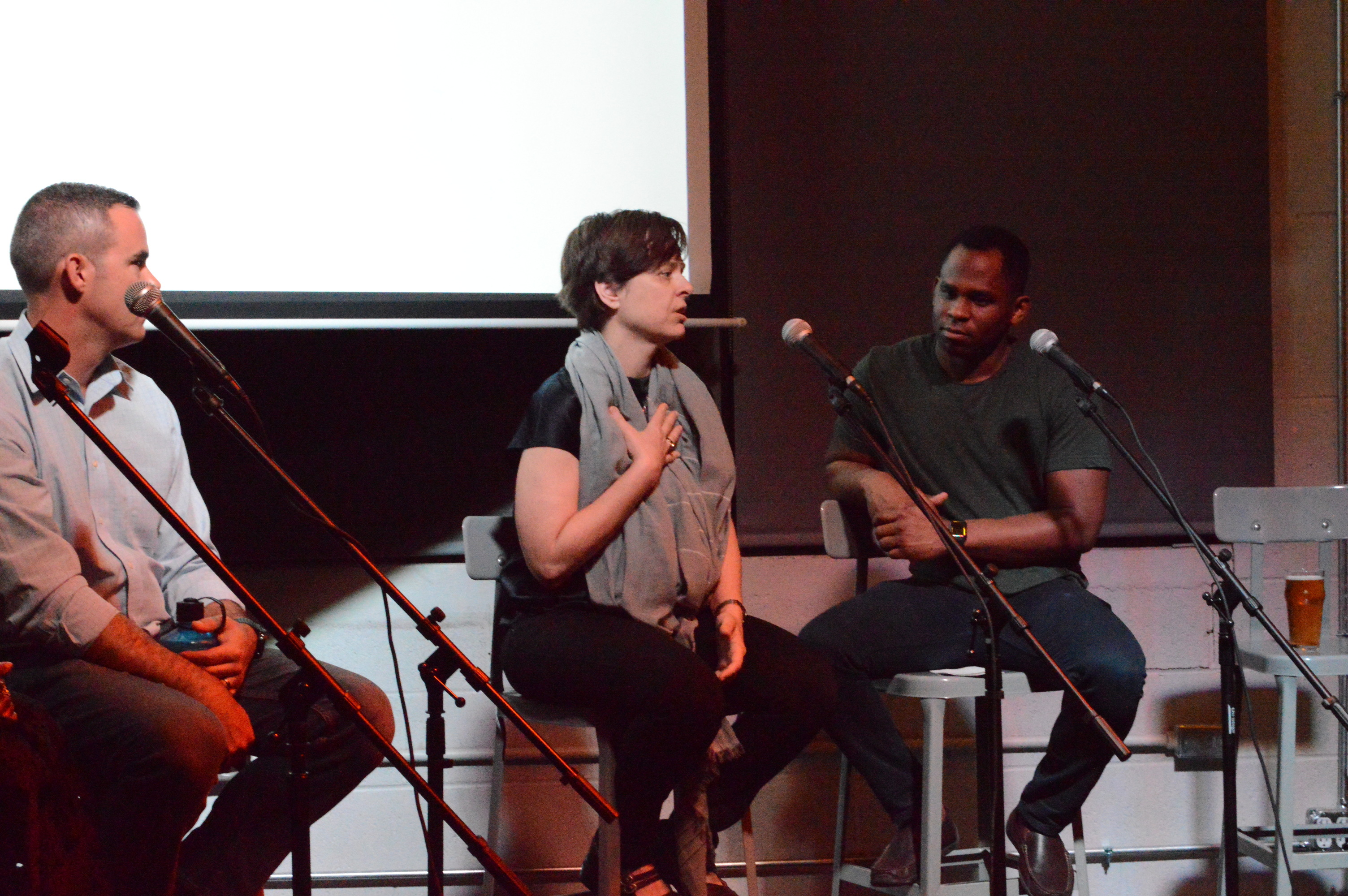
“When my partner got the job in Charlotte when we were living in Seattle, ‘I was just like I don’t want to go back there.’ because I was in a nice little bubble of progressiveness. It was just really easy.” – Mikale
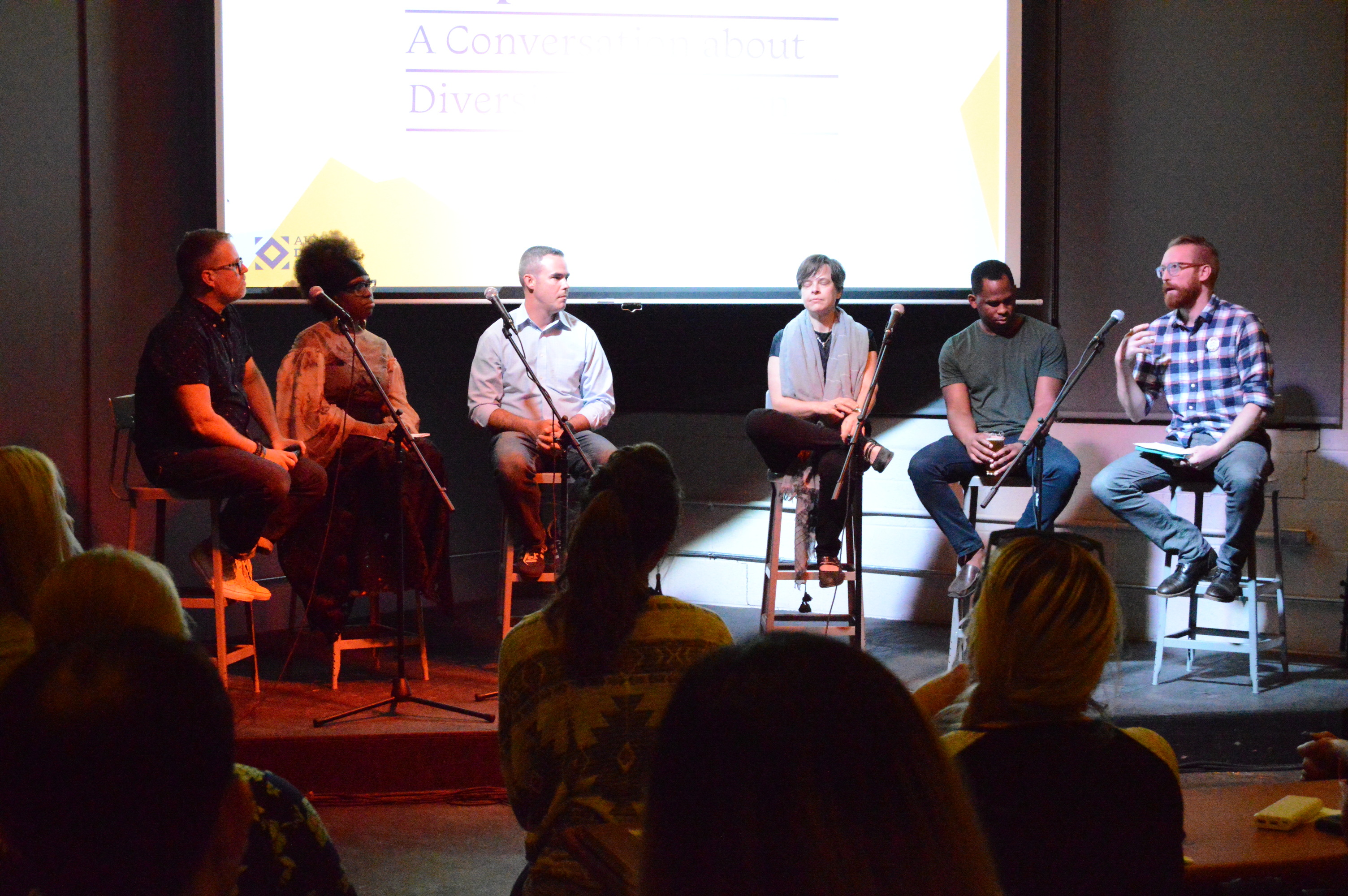
“I think an unconscious bias can be getting comfortable with our uncomfortable.” – Marty
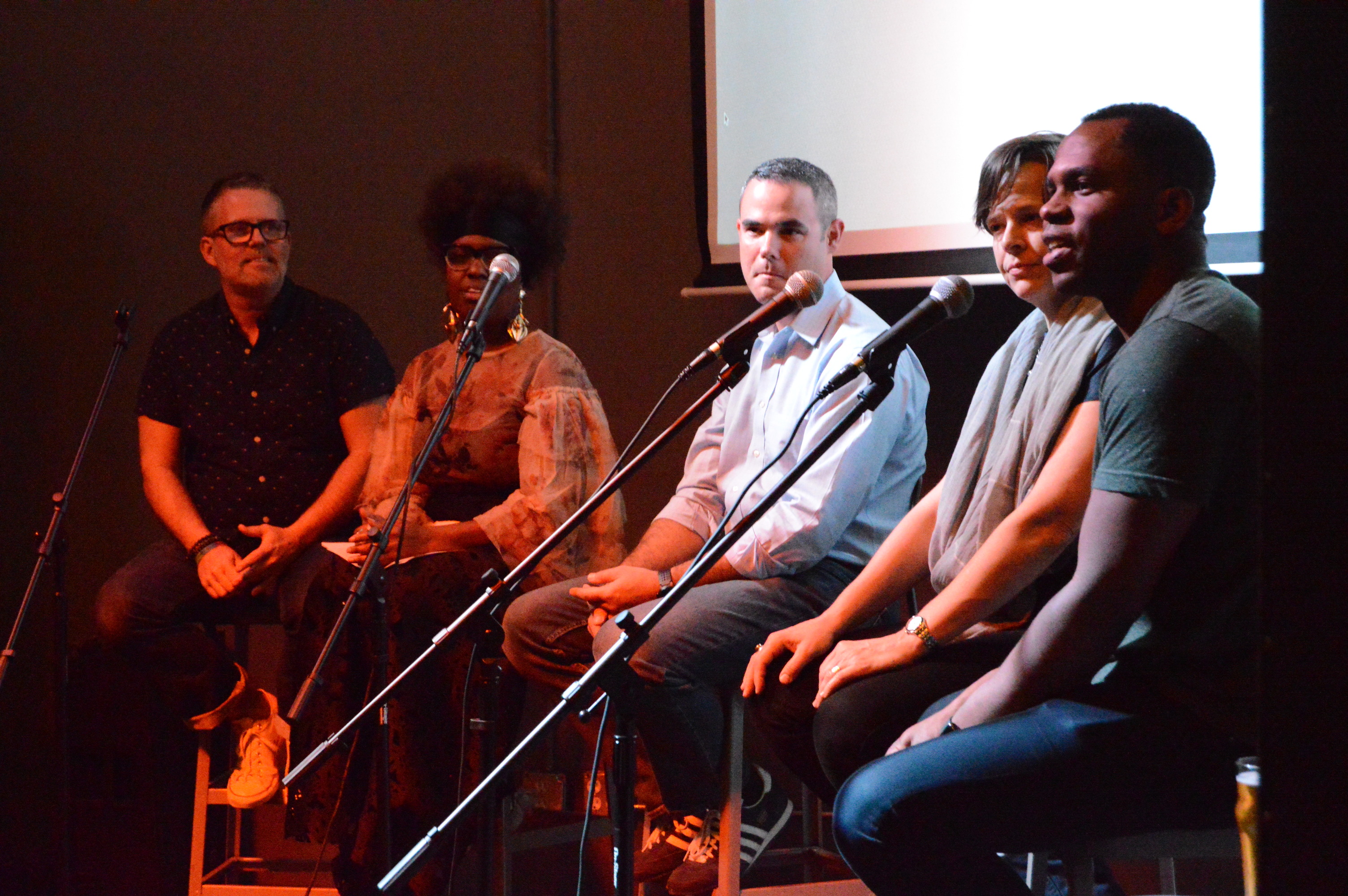
“You need to open yourself up. Learn from people. Come out of your bubble. We all have similarities, you can find that.” – Marty
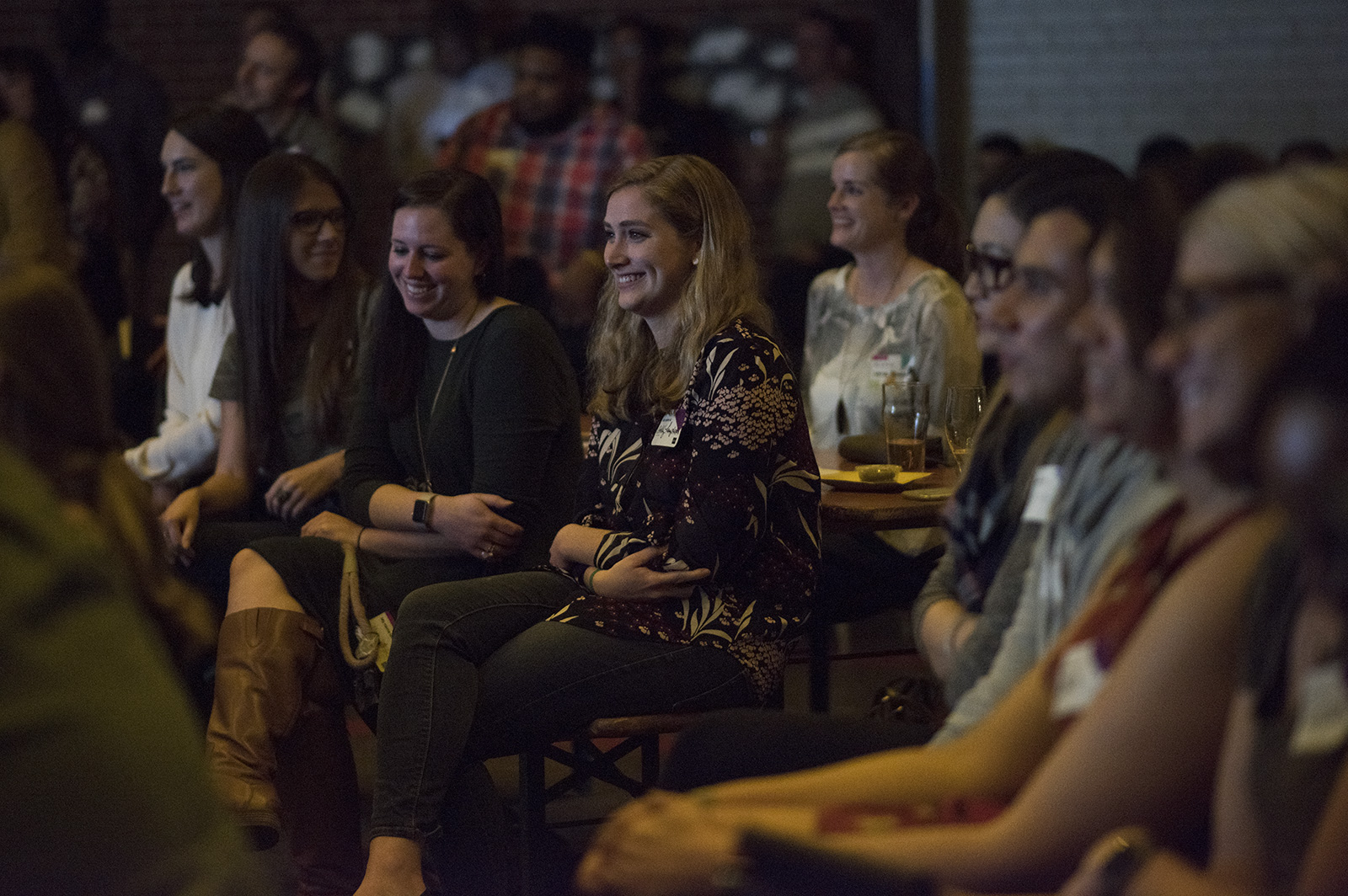
“I think getting rid of [bias and racism] comes down to education.” – Luis
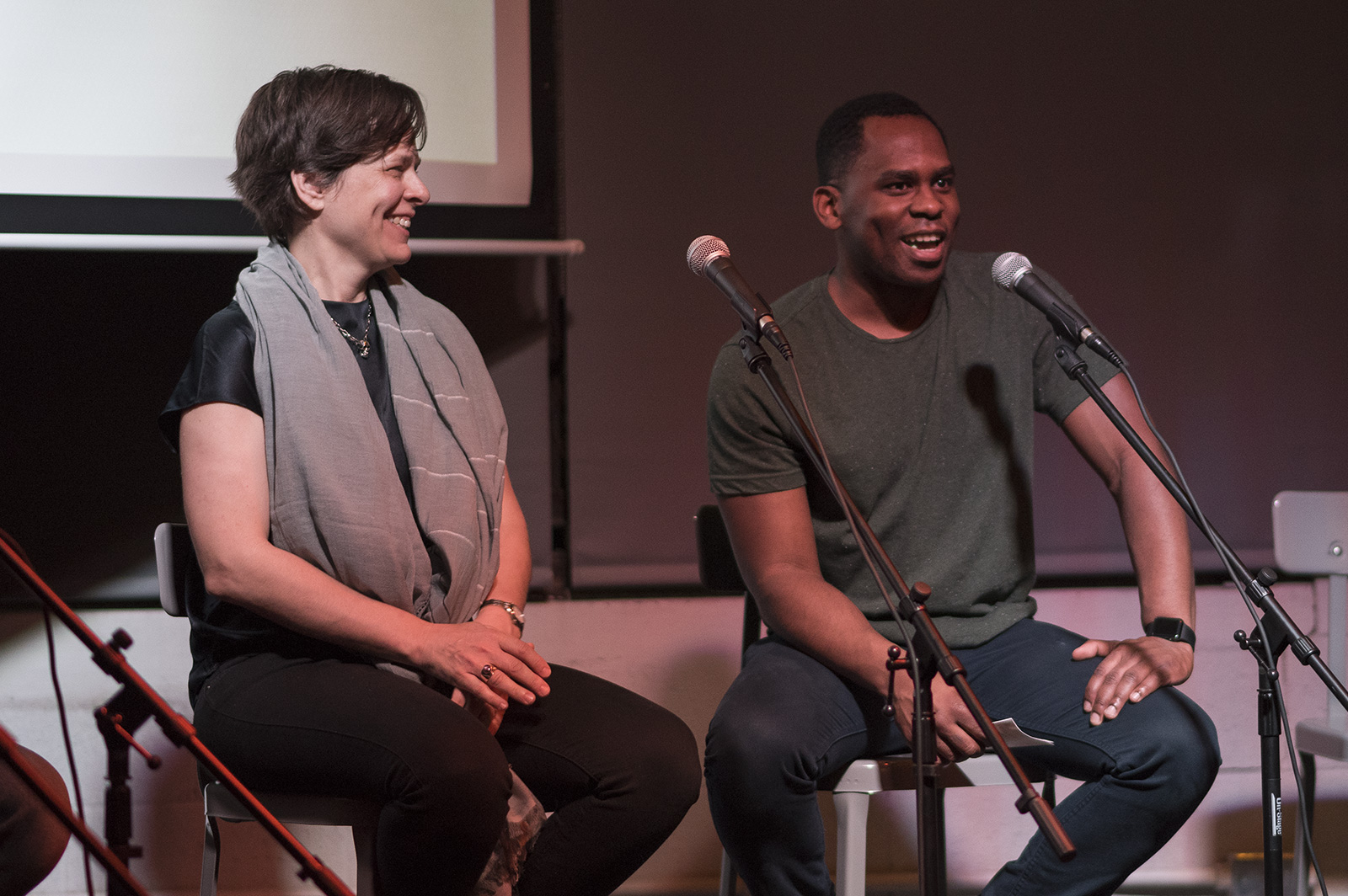
“I hope that 10 years down the line an image decision is based on the image, not making sure all bases are covered.” – Luis
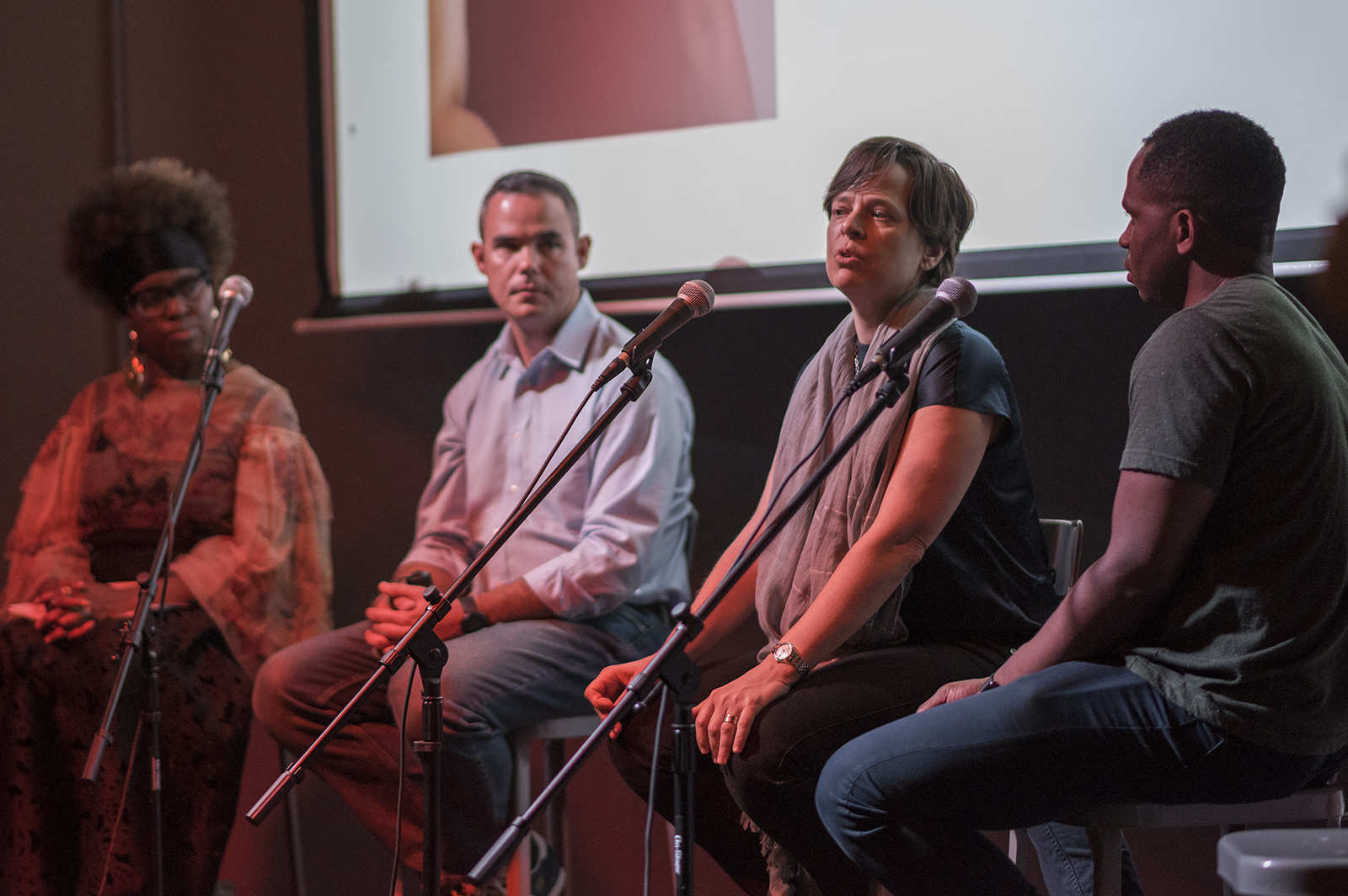
“We’ve got be brave enough to talk about things. That’s how we change things. That’s how we become great designers.” – Kimberly
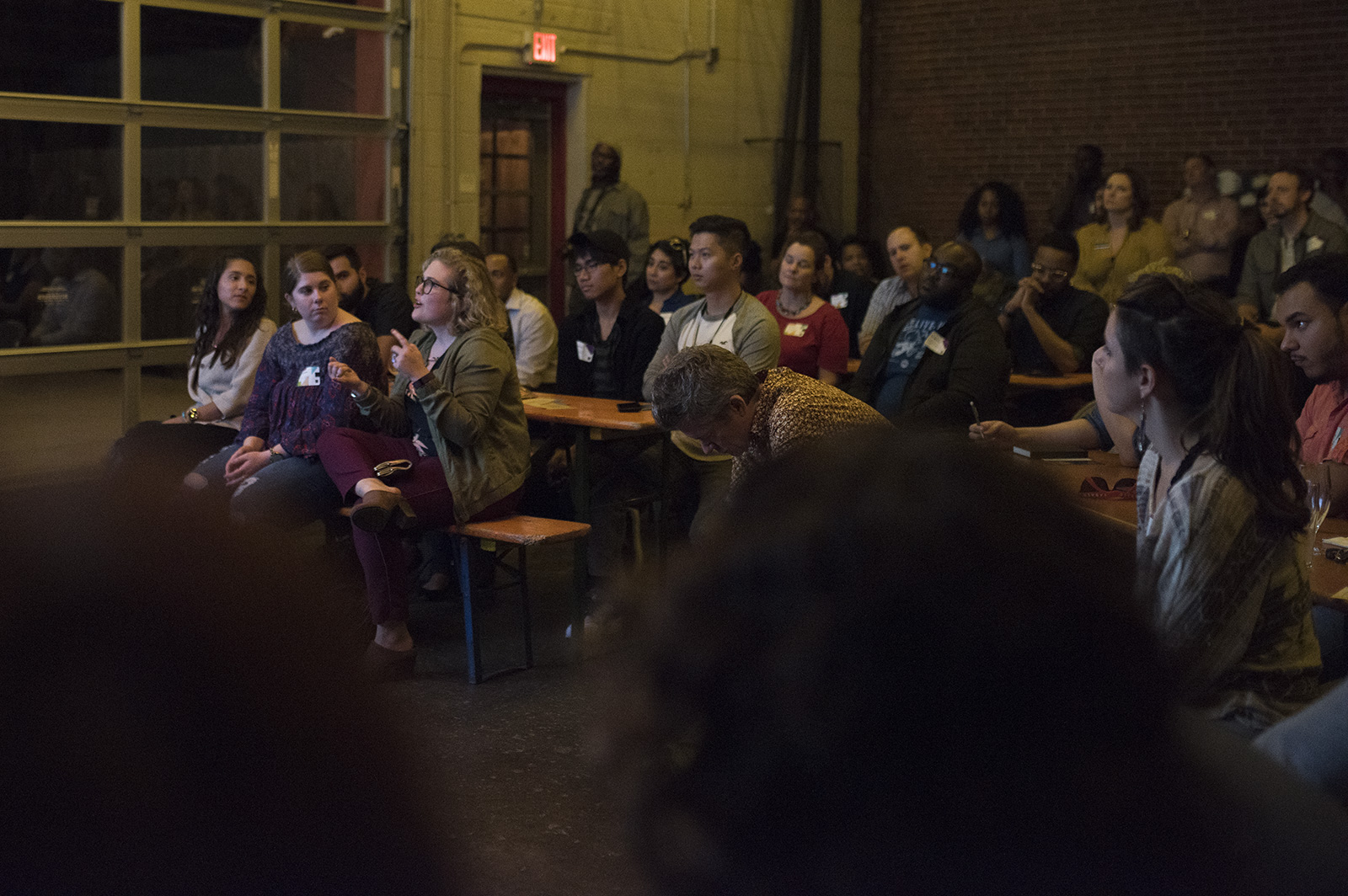
“It comes down to empathy.” – Chris
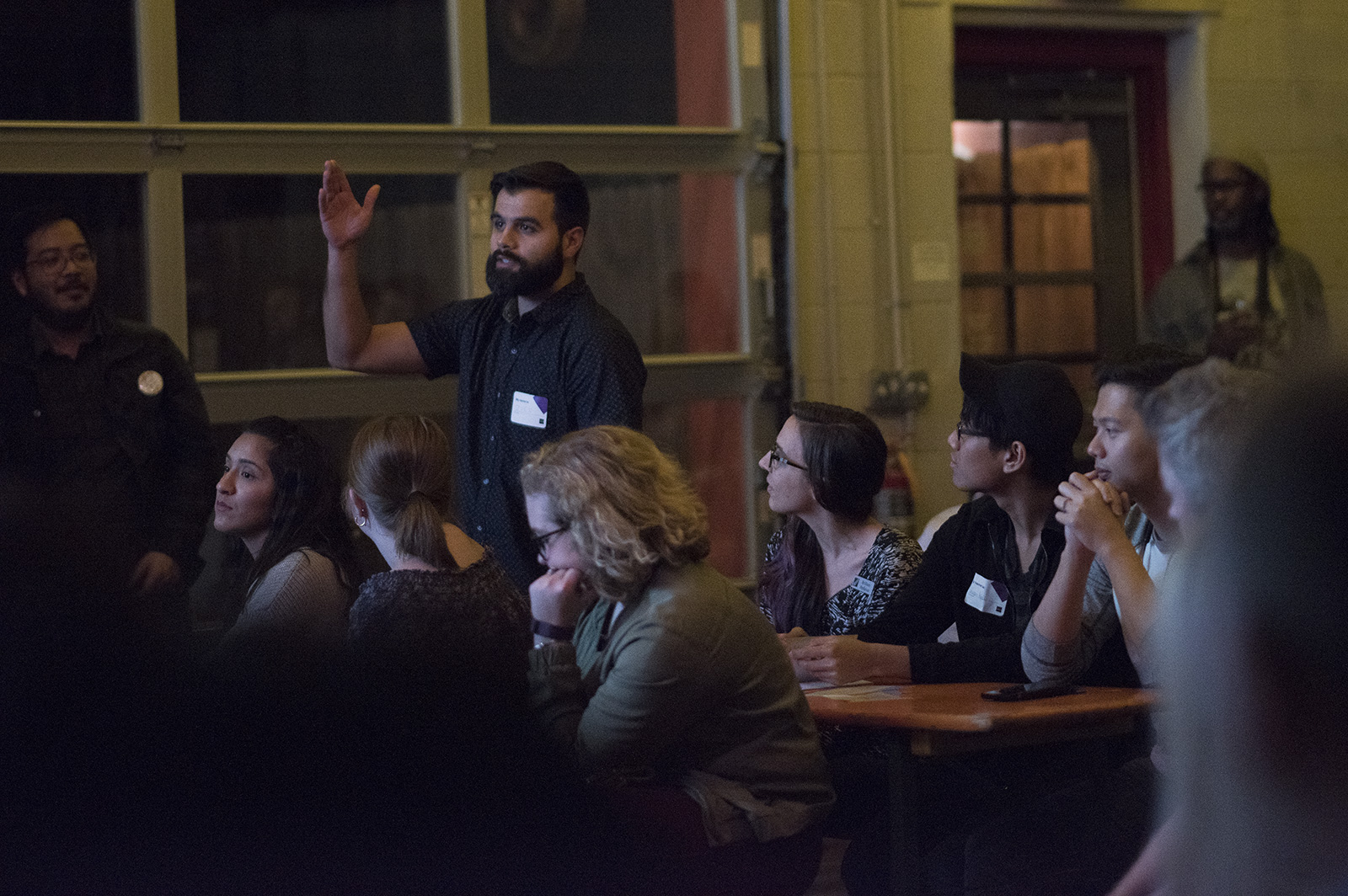
“I wouldn’t speak for people. But if a straight white man speaks to feminist ideas, that is way more powerful to me as a woman saying it because that can affect more people than I can affect. How you can help is being supportive of those views.” – Mikale
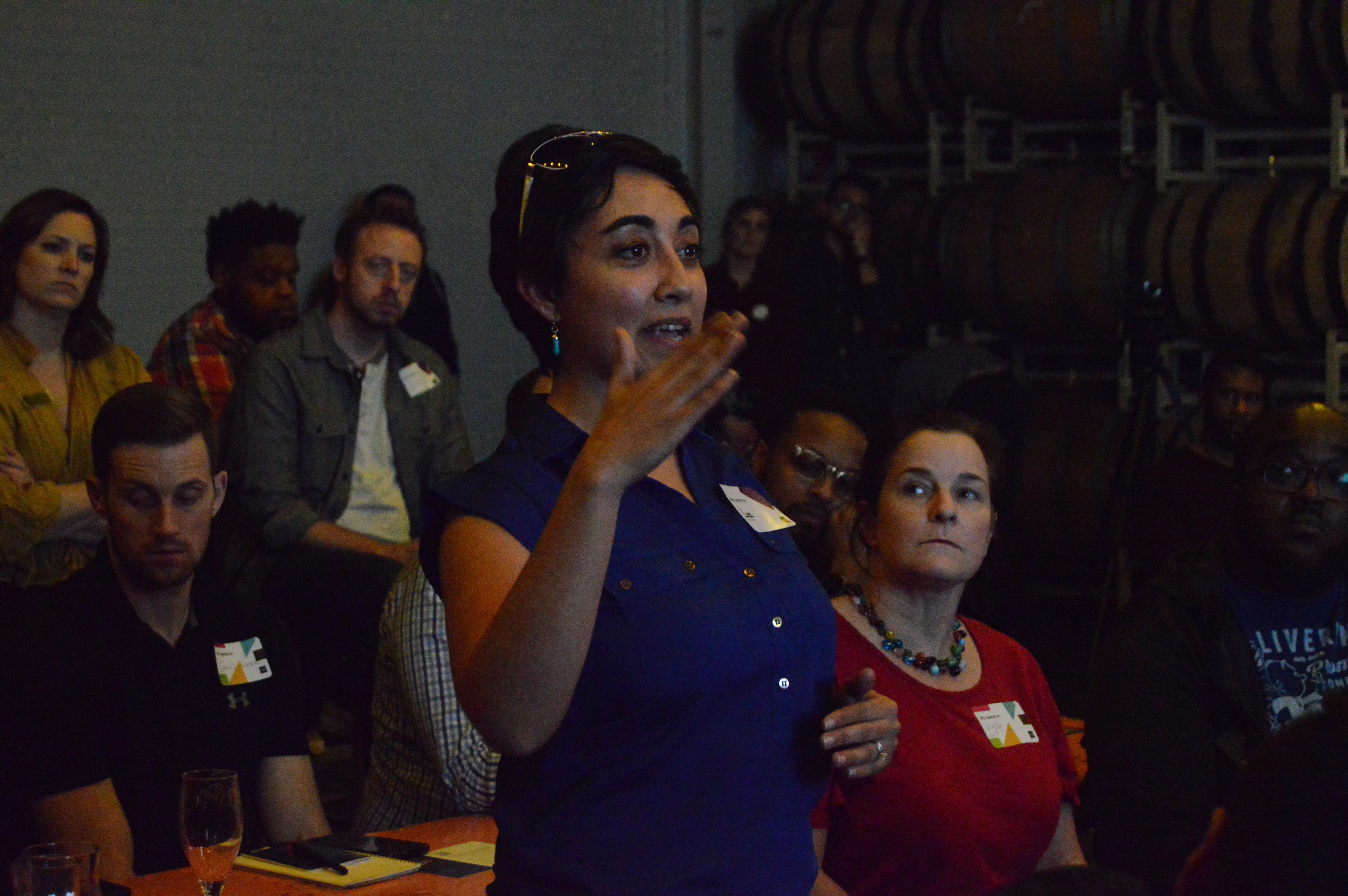
“Take time to ask questions to people. It’s so simple. Ask them questions about themselves.” – Mikale
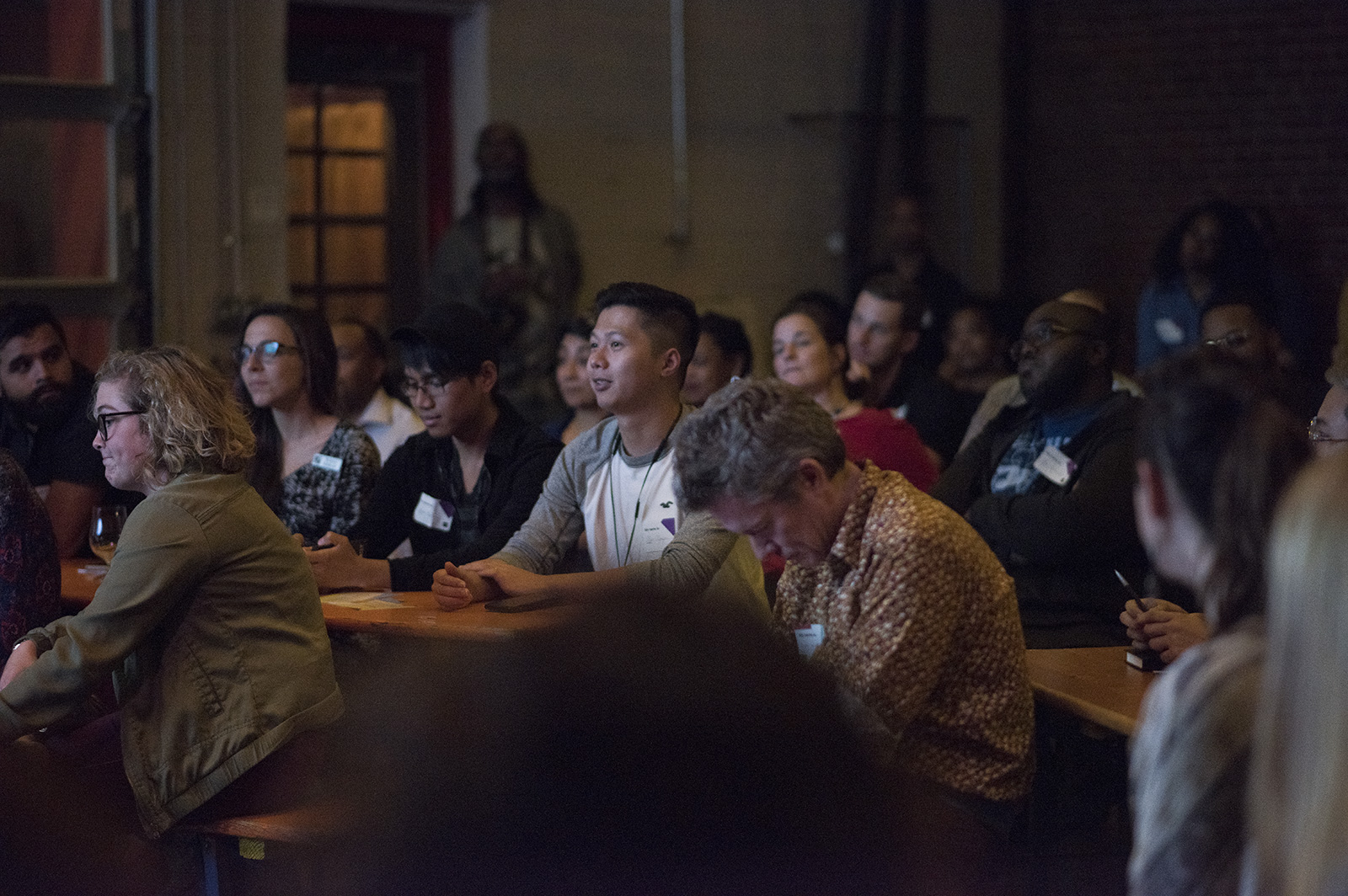
“Sometimes it takes the person that’s going through the challenge to push the envelope. Going back to that unconscious bias to create a consciousness and a change.” – Kimberly
Our first Perspective: A Conversation about Diversity & Inclusion Panel was an event that many of us will not soon forget. Each panelist brought a much-needed perspective and advice on how we can go forward. The audience also came with equipped with tons of questions like “What if we don’t identify with a minority group? How can we help?” or “How can we bring about change and acceptance through our jobs?”And boy, did our panel have some awesome answers. So next time we have an event that looks semi-interesting you might want to try to be there. Just a thought.
We can’t thank our esteemed panel enough for taking the time out of your busy schedules to share your heart with us. (Round of applause). We also would like to give a HUGE SHOUTOUT to our Co-Chairs of Diversity & Inclusion Tatiana Rice and Bailey Shoemaker, for making this your brainchild and seeing it through. We’re so proud of you! This event also wouldn’t have been possible without the help of our amazing sponsors: Free Range Brewing, Metrographics, the Dunhill Hotel and The Creative Group.